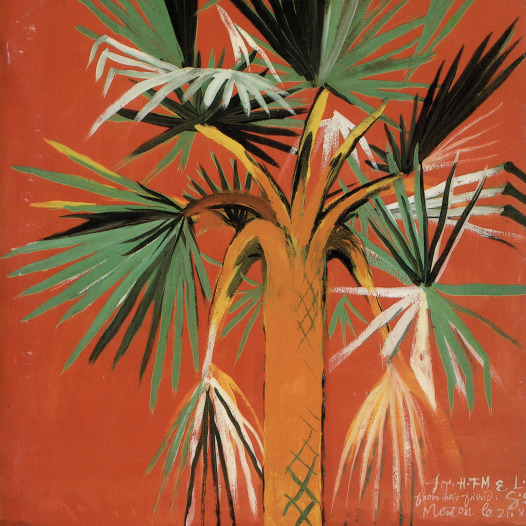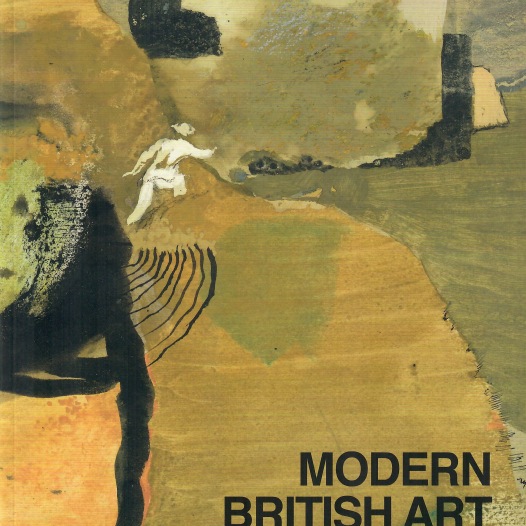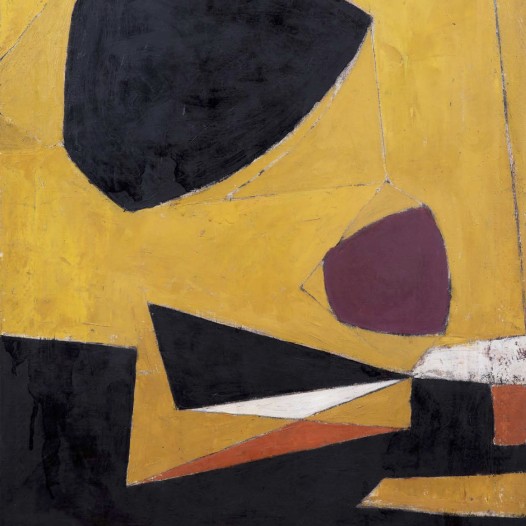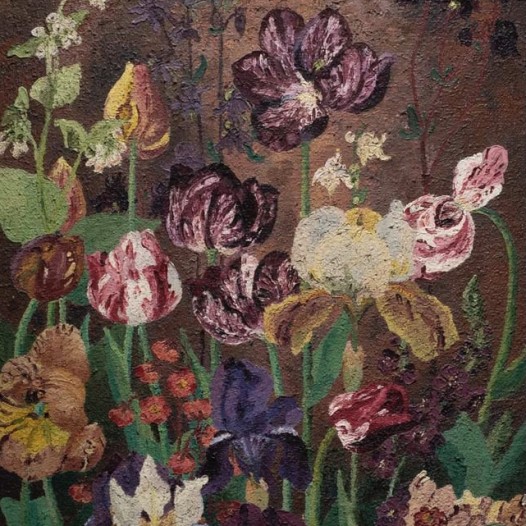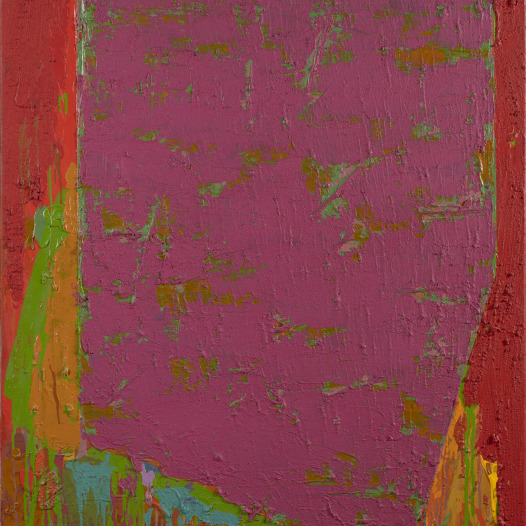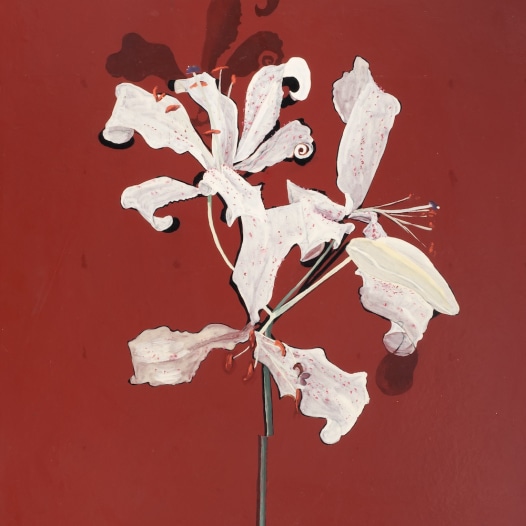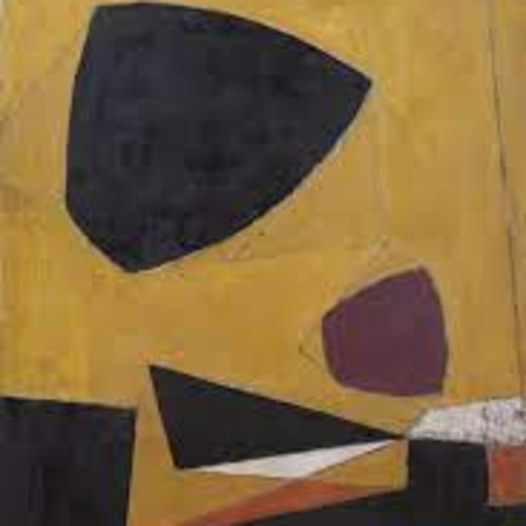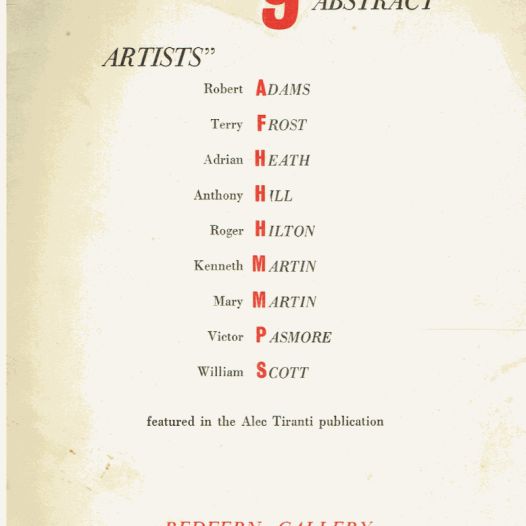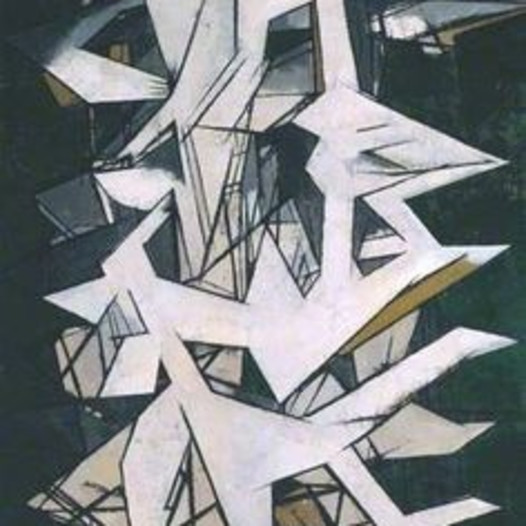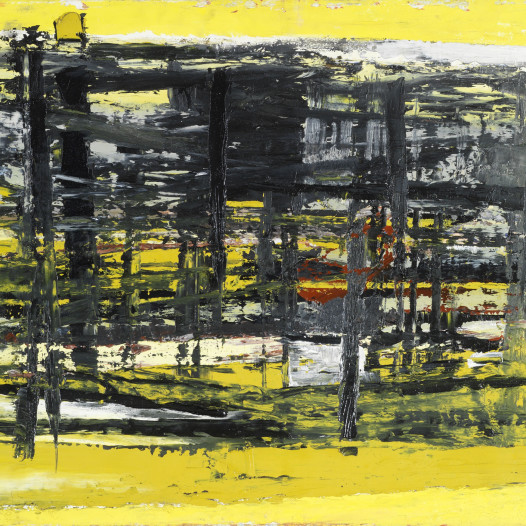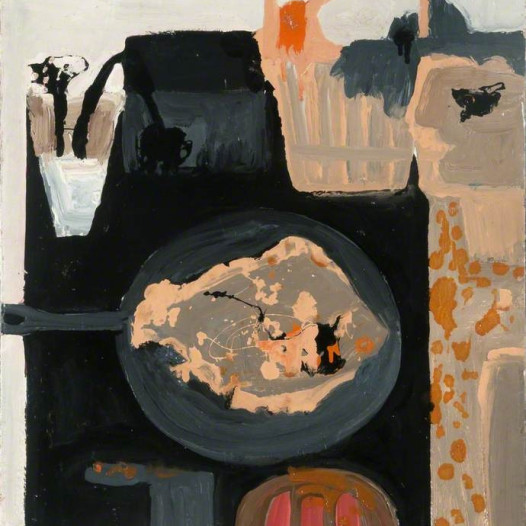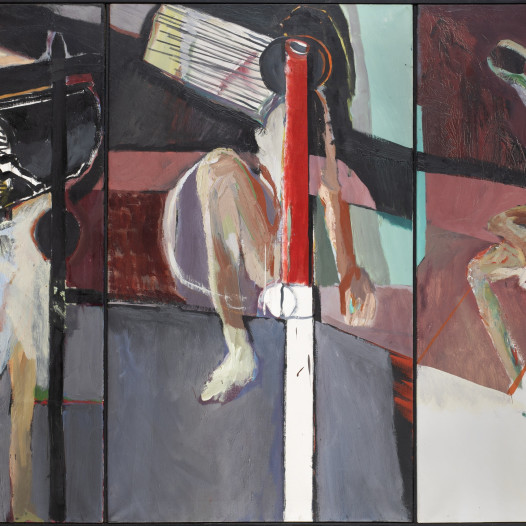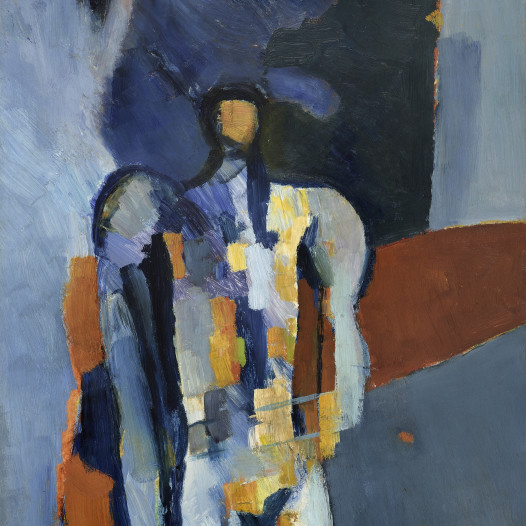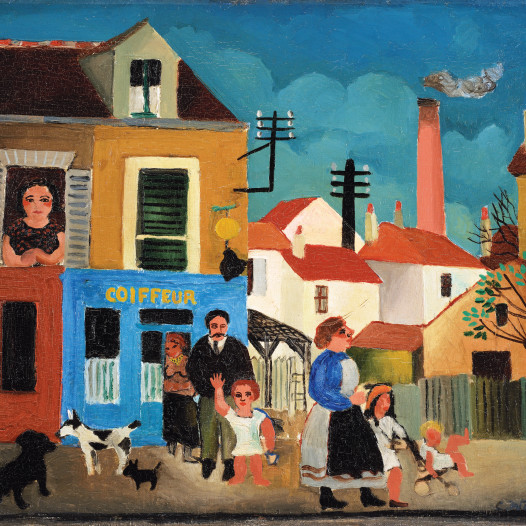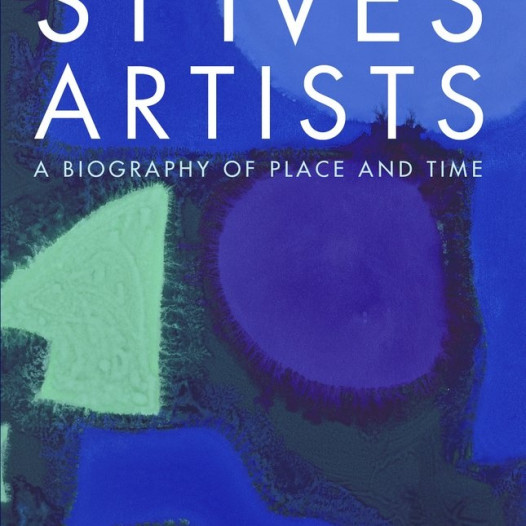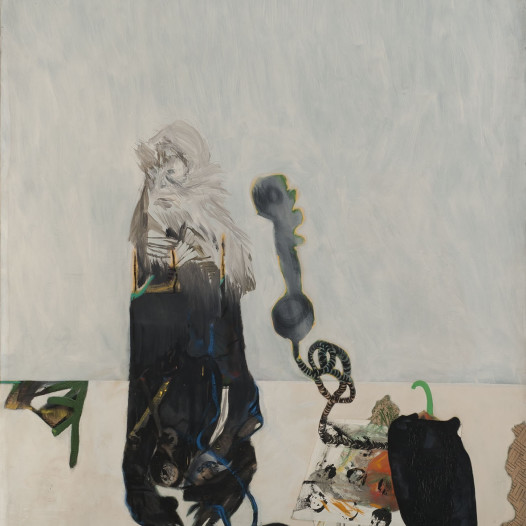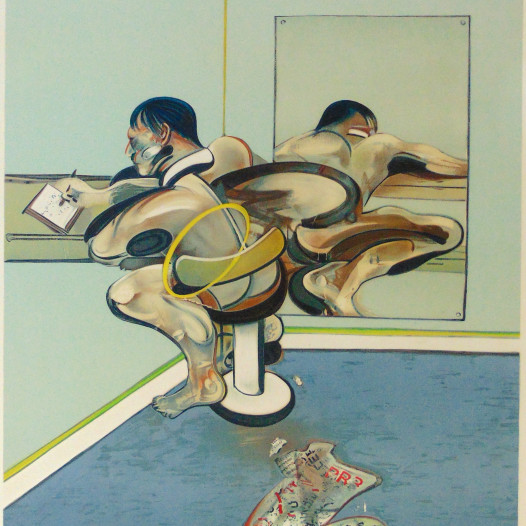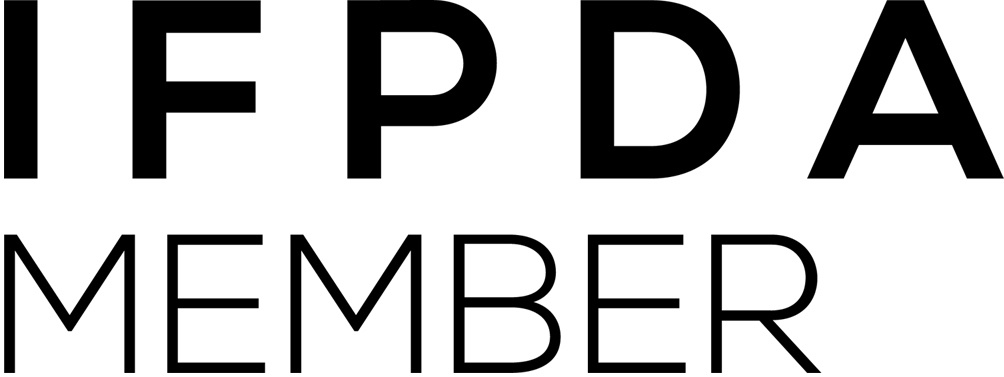Adrian Heath
1920–1992Adrian Heath was born in Burma in 1920. Arriving in England at the age of five, he studied painting in Cornwall before enrolling at Slade School of Art, where he studied under William Coldstream. During World War II he was imprisoned in the Bavarian prison camp Stalag 383. After trying to escape, he was placed in solitary confinement, during which time he started experimenting with abstract forms. Indeed, the war years proved crucial in the development of Heath’s analytic, abstract approach to form, which he always privileged over realism and figuration. Asked by the Stalag newspaper, Camp, what spiritual lesson captivity had taught him, Heath answered: "To observe at first hand how people of any background, education, temperament, intelligence and ability can respond to art and benefit from doing it and talking about it". After the war had ended, Heath returned to the Slade to complete his studies (under Randolph Schwabe). He then moved to France, where he spent some time in Paris, and a year in Carcassone. Although Heath was to retain links with Cornwall throughout his life, the impact that London and Paris exercised on his artistic production shaped the future of his work, which grew out of a cross-fertilisation between the classical abstraction which was typical of London, and the romantic abstraction of St. Ives. Having visited St Ives in 1949, befriending Ben Nicholson and William Scott, among others, Heath was able to forge a link between the St Ives School and the Constructivist movement back in London, as practised by Victor Pasmore and Kenneth and Mary Martin. Indeed, Heath was to play a vital role in promoting abstract art in Britain during the 1950s. His studio at Fitzroy Street soon became a meeting place, as well as an informal exhibition space, for many intellectuals and artists of the time. In 1955, he helped organise the first exhibition of post-war British abstract art, held at the AIA Gallery, London. Interested in art theory, he wrote a manifesto-like text entitled Abstract Art: Its Origins and Meaning, which was published in 1953, the same year as his first London show, which was staged at the Redfern Gallery. He served as Chairman of the Artists’ International Association between 1954 and 1964, and later served on the board of the Arts Council of Great Britain (1964-67).
His paintings of the '50s comprised painted abstract compositions of interlocking forms, underpinned by an interest in geometry, proportion and symmetry as well as colour. Heath was fascinated by the "growth" of these compositions; this, for him, was "the actual life of the work". As such, the compositions were worked over a number of layers, with the paintings often heavily textured as a result. To further this exploration of materiality, Heath often used collaged elements, incorporating card and thick paper into his canvases. An example from 1953, in which browned paper collages intersect heavily painted modulations of white, is now in the Tate. By the mid-'50s, Heath started to use curved forms; an important development that informed much of his subsequent paintings of this decade. A particularly good example was purchased from the Redfern in 1955, by the Arts Council of Great Britain. In 1957, Heath was part of Metavisual, Tachiste, Abstract, the seminal show of British abstract painting held at the Redfern.
By the 1960s, Heath pursued a new brand of abstract painting, preferring looser, more dynamic compositions, with expressive brush strokes and a smooth, flat application of oil. Completed on large-scale canvases, this new work was shown for the first time in a solo exhibition at the Hanover Gallery, from which several of the exhibits were sold to important public collections. For example, a particularly gestural painting in black and brown, was bought by the Tate, and other examples were sold to the art museums of Bristol, Leicester and Glasgow. Many of the compositions were based on preparatory sketches on paper, applied with swift, diluted washes of oil, an example of which was purchased by the Tate in 1964. Between the 1960s and ‘80s, Heath’s work was selected for inclusion in important survey shows, such as those organised by the British Council - notably British Art Today, which toured the USA in 1962; the Royal Academy's survey of British painting from 1952-77; and the Tate's first large-scale survey show of St Ives 1939-64, in 1985. Recently, Heath's work was selected by his friend Terry Frost, as part of an exhibition at Tate St Ives. His paintings can be seen Tate Britain's current exhibition Walk Through British Art, a chronological survey of the best British art, drawn from the Tate's permanent collection. Heath is in room 10, as part of a display focusing on abstract art in Britain during the 1950s.
The Redfern Gallery represents the Adrian Heath estate.
Works
-
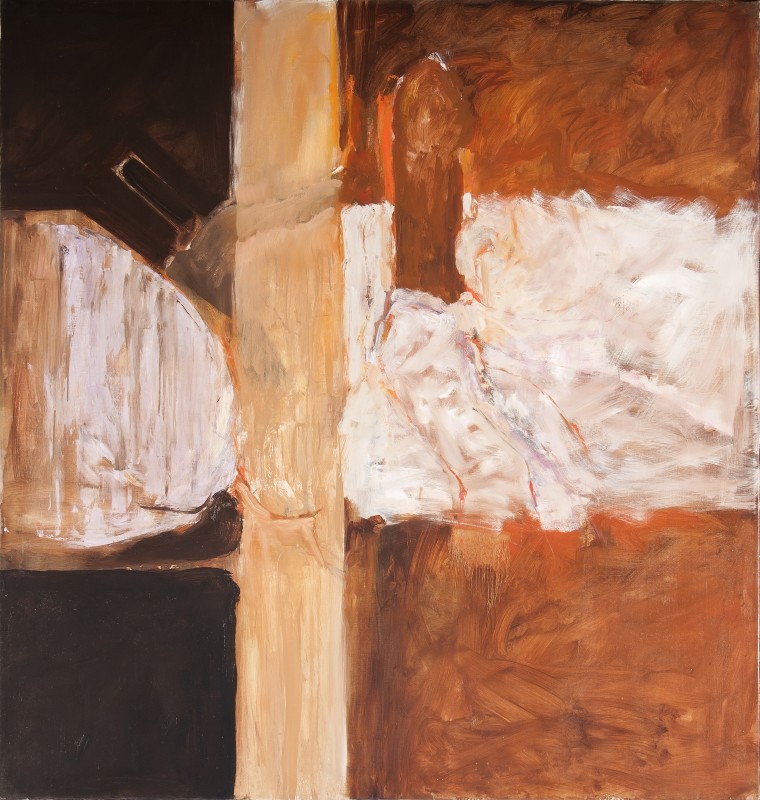 Adrian HeathUntitled Composition, c. 1960Oil on canvas183 x 153 cmSigned verso%3Cdiv%20class%3D%22artist%22%3E%3Cspan%20class%3D%22artist%22%3E%3Cstrong%3EAdrian%20Heath%3C/strong%3E%3C/span%3E%3C/div%3E%0D%3Cdiv%20class%3D%22title%22%3E%3Cem%3EUntitled%20Composition%3C/em%3E%2C%20c.%201960%3C/div%3E%0D%3Cdiv%20class%3D%22signed_and_dated%22%3ESigned%20verso%3C/div%3E%0D%3Cdiv%20class%3D%22medium%22%3EOil%20on%20canvas%3C/div%3E%0D%3Cdiv%20class%3D%22dimensions%22%3E183%20x%20153%20cm%3C/div%3E
Adrian HeathUntitled Composition, c. 1960Oil on canvas183 x 153 cmSigned verso%3Cdiv%20class%3D%22artist%22%3E%3Cspan%20class%3D%22artist%22%3E%3Cstrong%3EAdrian%20Heath%3C/strong%3E%3C/span%3E%3C/div%3E%0D%3Cdiv%20class%3D%22title%22%3E%3Cem%3EUntitled%20Composition%3C/em%3E%2C%20c.%201960%3C/div%3E%0D%3Cdiv%20class%3D%22signed_and_dated%22%3ESigned%20verso%3C/div%3E%0D%3Cdiv%20class%3D%22medium%22%3EOil%20on%20canvas%3C/div%3E%0D%3Cdiv%20class%3D%22dimensions%22%3E183%20x%20153%20cm%3C/div%3E -
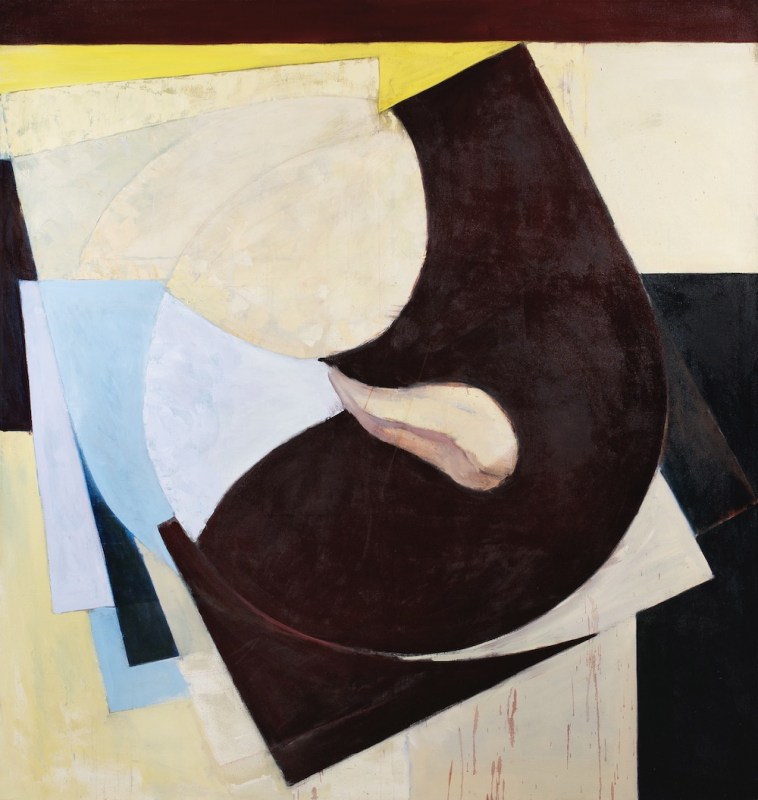 Adrian HeathUntitled, 1988-89Oil on canvas183 x 173cm%3Cdiv%20class%3D%22artist%22%3E%3Cspan%20class%3D%22artist%22%3E%3Cstrong%3EAdrian%20Heath%3C/strong%3E%3C/span%3E%3C/div%3E%0D%3Cdiv%20class%3D%22title%22%3E%3Cem%3EUntitled%3C/em%3E%2C%201988-89%3C/div%3E%0D%3Cdiv%20class%3D%22medium%22%3EOil%20on%20canvas%3C/div%3E%0D%3Cdiv%20class%3D%22dimensions%22%3E183%20x%20173cm%3C/div%3E
Adrian HeathUntitled, 1988-89Oil on canvas183 x 173cm%3Cdiv%20class%3D%22artist%22%3E%3Cspan%20class%3D%22artist%22%3E%3Cstrong%3EAdrian%20Heath%3C/strong%3E%3C/span%3E%3C/div%3E%0D%3Cdiv%20class%3D%22title%22%3E%3Cem%3EUntitled%3C/em%3E%2C%201988-89%3C/div%3E%0D%3Cdiv%20class%3D%22medium%22%3EOil%20on%20canvas%3C/div%3E%0D%3Cdiv%20class%3D%22dimensions%22%3E183%20x%20173cm%3C/div%3E -
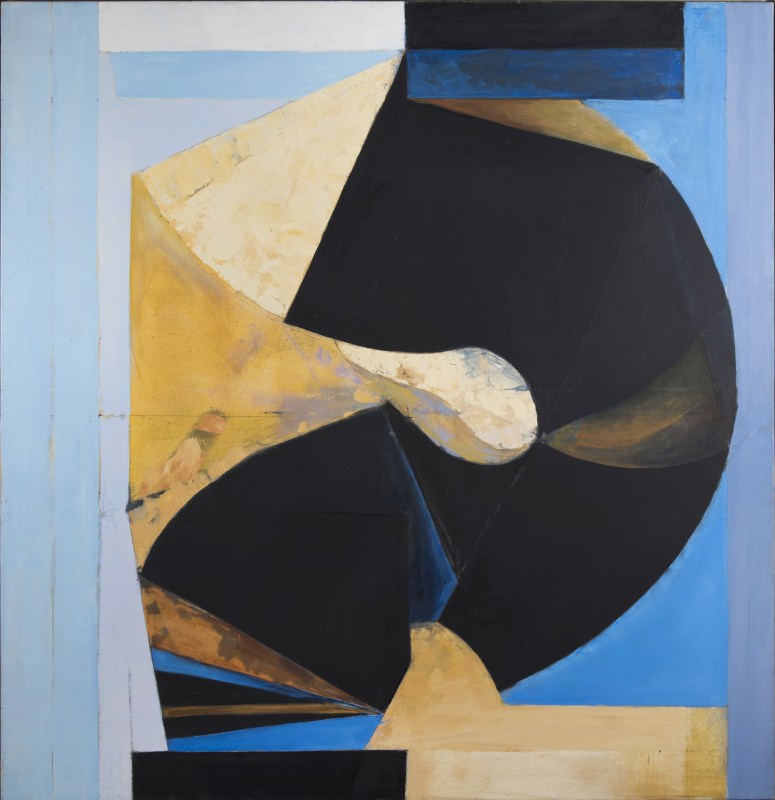 Adrian HeathPercha 4, 1988Oil on canvas152.4 x 147.3 cm%3Cdiv%20class%3D%22artist%22%3E%3Cspan%20class%3D%22artist%22%3E%3Cstrong%3EAdrian%20Heath%3C/strong%3E%3C/span%3E%3C/div%3E%0D%3Cdiv%20class%3D%22title%22%3E%3Cem%3EPercha%204%3C/em%3E%2C%201988%3C/div%3E%0D%3Cdiv%20class%3D%22medium%22%3EOil%20on%20canvas%3C/div%3E%0D%3Cdiv%20class%3D%22dimensions%22%3E152.4%20x%20147.3%20cm%3C/div%3E
Adrian HeathPercha 4, 1988Oil on canvas152.4 x 147.3 cm%3Cdiv%20class%3D%22artist%22%3E%3Cspan%20class%3D%22artist%22%3E%3Cstrong%3EAdrian%20Heath%3C/strong%3E%3C/span%3E%3C/div%3E%0D%3Cdiv%20class%3D%22title%22%3E%3Cem%3EPercha%204%3C/em%3E%2C%201988%3C/div%3E%0D%3Cdiv%20class%3D%22medium%22%3EOil%20on%20canvas%3C/div%3E%0D%3Cdiv%20class%3D%22dimensions%22%3E152.4%20x%20147.3%20cm%3C/div%3E -
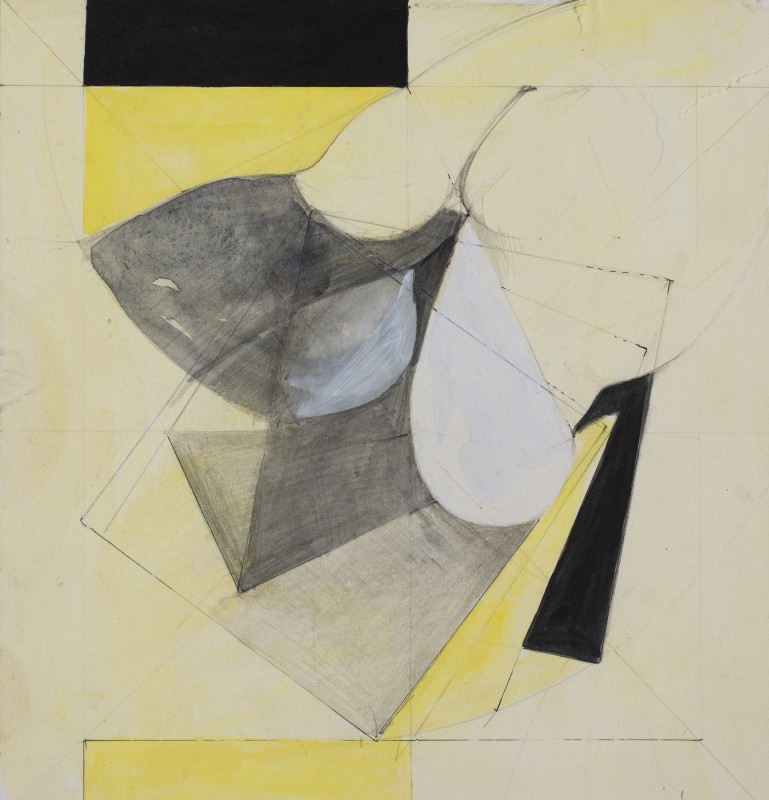 Adrian HeathVoss, 1987Gouache, watercolour and pencil on card27 x 25.5 cmInitialled and dated lower right; titled verso%3Cdiv%20class%3D%22artist%22%3E%3Cspan%20class%3D%22artist%22%3E%3Cstrong%3EAdrian%20Heath%3C/strong%3E%3C/span%3E%3C/div%3E%0D%3Cdiv%20class%3D%22title%22%3E%3Cem%3EVoss%3C/em%3E%2C%201987%3C/div%3E%0D%3Cdiv%20class%3D%22signed_and_dated%22%3EInitialled%20and%20dated%20lower%20right%3B%20titled%20verso%3C/div%3E%0D%3Cdiv%20class%3D%22medium%22%3EGouache%2C%20watercolour%20and%20pencil%20on%20card%3C/div%3E%0D%3Cdiv%20class%3D%22dimensions%22%3E27%20x%2025.5%20cm%3C/div%3E
Adrian HeathVoss, 1987Gouache, watercolour and pencil on card27 x 25.5 cmInitialled and dated lower right; titled verso%3Cdiv%20class%3D%22artist%22%3E%3Cspan%20class%3D%22artist%22%3E%3Cstrong%3EAdrian%20Heath%3C/strong%3E%3C/span%3E%3C/div%3E%0D%3Cdiv%20class%3D%22title%22%3E%3Cem%3EVoss%3C/em%3E%2C%201987%3C/div%3E%0D%3Cdiv%20class%3D%22signed_and_dated%22%3EInitialled%20and%20dated%20lower%20right%3B%20titled%20verso%3C/div%3E%0D%3Cdiv%20class%3D%22medium%22%3EGouache%2C%20watercolour%20and%20pencil%20on%20card%3C/div%3E%0D%3Cdiv%20class%3D%22dimensions%22%3E27%20x%2025.5%20cm%3C/div%3E -
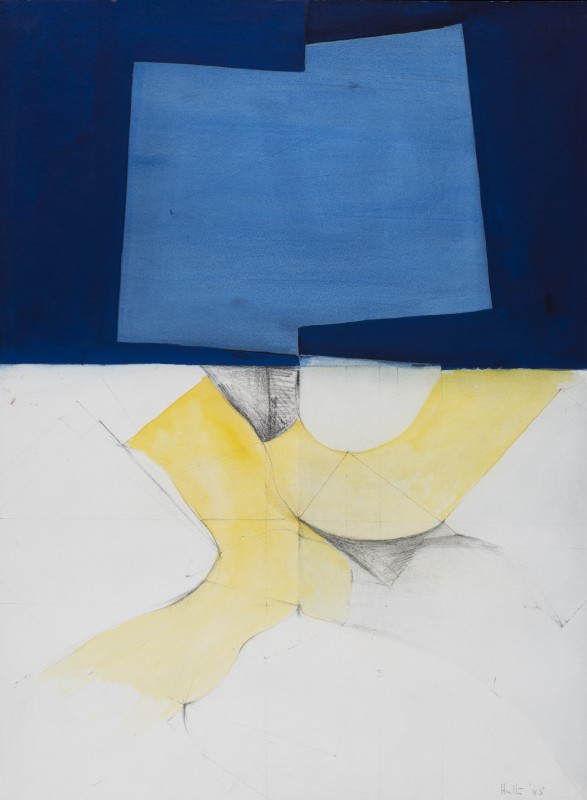 Adrian HeathDrawing Hillhead, 1985Wash, pencil and pen on paper75.5 x 56 cmSigned and dated lower right; titled verso%3Cdiv%20class%3D%22artist%22%3E%3Cspan%20class%3D%22artist%22%3E%3Cstrong%3EAdrian%20Heath%3C/strong%3E%3C/span%3E%3C/div%3E%0D%3Cdiv%20class%3D%22title%22%3E%3Cem%3EDrawing%20Hillhead%3C/em%3E%2C%201985%3C/div%3E%0D%3Cdiv%20class%3D%22signed_and_dated%22%3ESigned%20and%20dated%20lower%20right%3B%20titled%20verso%3C/div%3E%0D%3Cdiv%20class%3D%22medium%22%3EWash%2C%20pencil%20and%20pen%20on%20paper%3C/div%3E%0D%3Cdiv%20class%3D%22dimensions%22%3E75.5%20x%2056%20cm%3C/div%3E
Adrian HeathDrawing Hillhead, 1985Wash, pencil and pen on paper75.5 x 56 cmSigned and dated lower right; titled verso%3Cdiv%20class%3D%22artist%22%3E%3Cspan%20class%3D%22artist%22%3E%3Cstrong%3EAdrian%20Heath%3C/strong%3E%3C/span%3E%3C/div%3E%0D%3Cdiv%20class%3D%22title%22%3E%3Cem%3EDrawing%20Hillhead%3C/em%3E%2C%201985%3C/div%3E%0D%3Cdiv%20class%3D%22signed_and_dated%22%3ESigned%20and%20dated%20lower%20right%3B%20titled%20verso%3C/div%3E%0D%3Cdiv%20class%3D%22medium%22%3EWash%2C%20pencil%20and%20pen%20on%20paper%3C/div%3E%0D%3Cdiv%20class%3D%22dimensions%22%3E75.5%20x%2056%20cm%3C/div%3E -
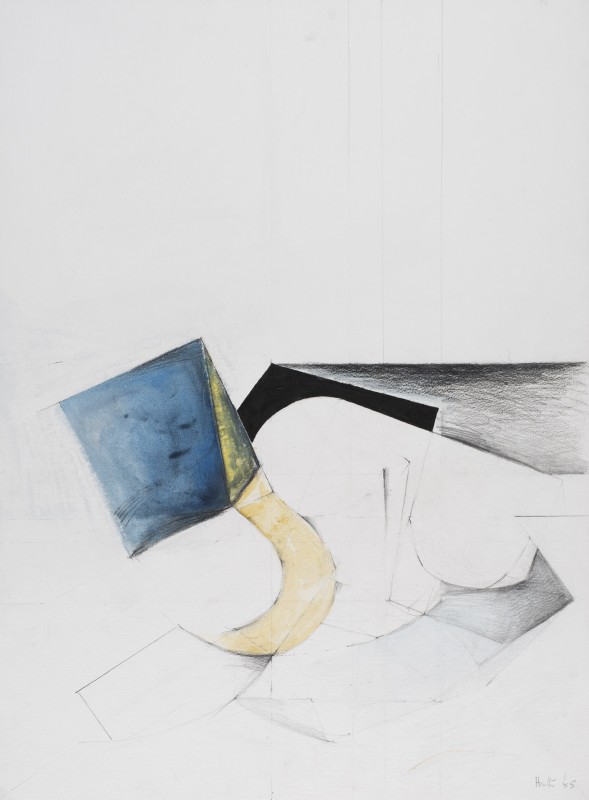 Adrian HeathHillhead, 1985Ink, watercolour and pencil on paper76 x 56 cmSigned and dated lower right; titled verso%3Cdiv%20class%3D%22artist%22%3E%3Cspan%20class%3D%22artist%22%3E%3Cstrong%3EAdrian%20Heath%3C/strong%3E%3C/span%3E%3C/div%3E%0D%3Cdiv%20class%3D%22title%22%3E%3Cem%3EHillhead%3C/em%3E%2C%201985%3C/div%3E%0D%3Cdiv%20class%3D%22signed_and_dated%22%3ESigned%20and%20dated%20lower%20right%3B%20titled%20verso%3C/div%3E%0D%3Cdiv%20class%3D%22medium%22%3EInk%2C%20watercolour%20and%20pencil%20on%20paper%3C/div%3E%0D%3Cdiv%20class%3D%22dimensions%22%3E76%20x%2056%20cm%3C/div%3E
Adrian HeathHillhead, 1985Ink, watercolour and pencil on paper76 x 56 cmSigned and dated lower right; titled verso%3Cdiv%20class%3D%22artist%22%3E%3Cspan%20class%3D%22artist%22%3E%3Cstrong%3EAdrian%20Heath%3C/strong%3E%3C/span%3E%3C/div%3E%0D%3Cdiv%20class%3D%22title%22%3E%3Cem%3EHillhead%3C/em%3E%2C%201985%3C/div%3E%0D%3Cdiv%20class%3D%22signed_and_dated%22%3ESigned%20and%20dated%20lower%20right%3B%20titled%20verso%3C/div%3E%0D%3Cdiv%20class%3D%22medium%22%3EInk%2C%20watercolour%20and%20pencil%20on%20paper%3C/div%3E%0D%3Cdiv%20class%3D%22dimensions%22%3E76%20x%2056%20cm%3C/div%3E -
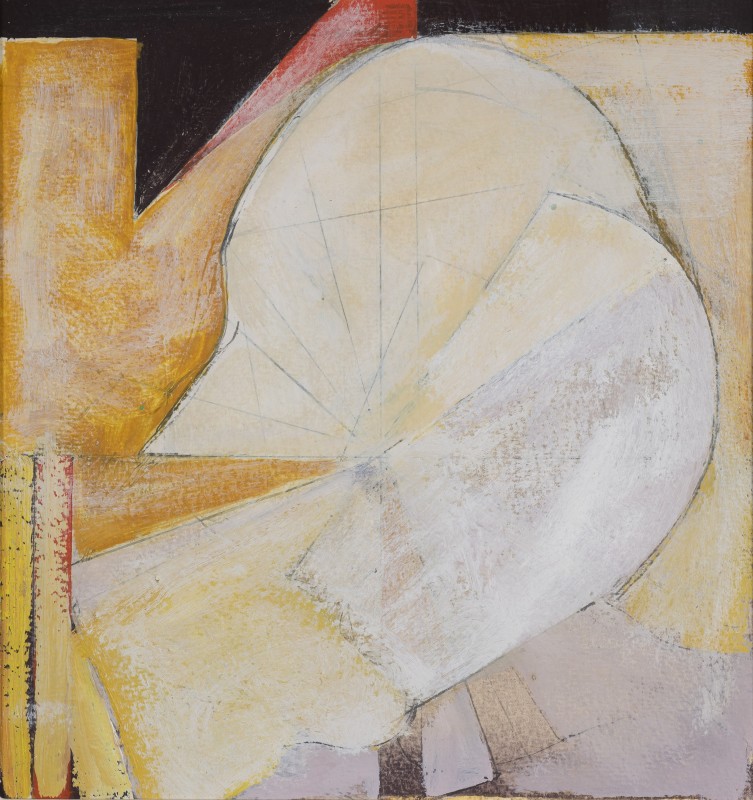 Adrian HeathAxis Points, 1982Mixed media on paper23 x 22.5 cmTitled verso%3Cdiv%20class%3D%22artist%22%3E%3Cspan%20class%3D%22artist%22%3E%3Cstrong%3EAdrian%20Heath%3C/strong%3E%3C/span%3E%3C/div%3E%0D%3Cdiv%20class%3D%22title%22%3E%3Cem%3EAxis%20Points%3C/em%3E%2C%201982%3C/div%3E%0D%3Cdiv%20class%3D%22signed_and_dated%22%3ETitled%20verso%3C/div%3E%0D%3Cdiv%20class%3D%22medium%22%3EMixed%20media%20on%20paper%3C/div%3E%0D%3Cdiv%20class%3D%22dimensions%22%3E23%20x%2022.5%20cm%3C/div%3E
Adrian HeathAxis Points, 1982Mixed media on paper23 x 22.5 cmTitled verso%3Cdiv%20class%3D%22artist%22%3E%3Cspan%20class%3D%22artist%22%3E%3Cstrong%3EAdrian%20Heath%3C/strong%3E%3C/span%3E%3C/div%3E%0D%3Cdiv%20class%3D%22title%22%3E%3Cem%3EAxis%20Points%3C/em%3E%2C%201982%3C/div%3E%0D%3Cdiv%20class%3D%22signed_and_dated%22%3ETitled%20verso%3C/div%3E%0D%3Cdiv%20class%3D%22medium%22%3EMixed%20media%20on%20paper%3C/div%3E%0D%3Cdiv%20class%3D%22dimensions%22%3E23%20x%2022.5%20cm%3C/div%3E -
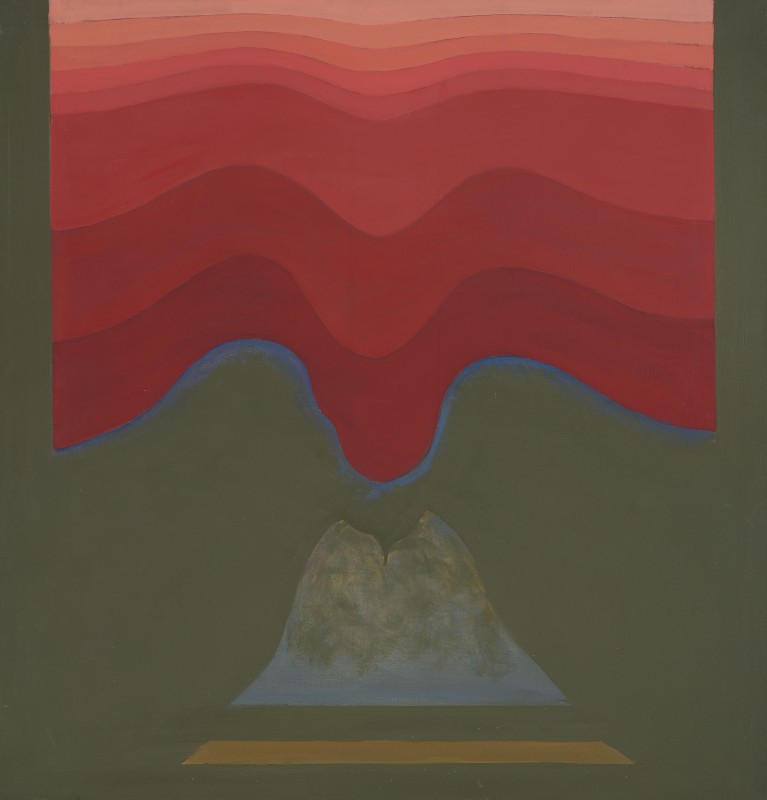 Adrian HeathCraster, 1972-1973Oil on canvas127 x 121.9 cmSigned, dated and titled verso%3Cdiv%20class%3D%22artist%22%3E%3Cspan%20class%3D%22artist%22%3E%3Cstrong%3EAdrian%20Heath%3C/strong%3E%3C/span%3E%3C/div%3E%0D%3Cdiv%20class%3D%22title%22%3E%3Cem%3ECraster%3C/em%3E%2C%201972-1973%3C/div%3E%0D%3Cdiv%20class%3D%22signed_and_dated%22%3ESigned%2C%20dated%20and%20titled%20verso%3C/div%3E%0D%3Cdiv%20class%3D%22medium%22%3EOil%20on%20canvas%3C/div%3E%0D%3Cdiv%20class%3D%22dimensions%22%3E127%20x%20121.9%20cm%3C/div%3E
Adrian HeathCraster, 1972-1973Oil on canvas127 x 121.9 cmSigned, dated and titled verso%3Cdiv%20class%3D%22artist%22%3E%3Cspan%20class%3D%22artist%22%3E%3Cstrong%3EAdrian%20Heath%3C/strong%3E%3C/span%3E%3C/div%3E%0D%3Cdiv%20class%3D%22title%22%3E%3Cem%3ECraster%3C/em%3E%2C%201972-1973%3C/div%3E%0D%3Cdiv%20class%3D%22signed_and_dated%22%3ESigned%2C%20dated%20and%20titled%20verso%3C/div%3E%0D%3Cdiv%20class%3D%22medium%22%3EOil%20on%20canvas%3C/div%3E%0D%3Cdiv%20class%3D%22dimensions%22%3E127%20x%20121.9%20cm%3C/div%3E -
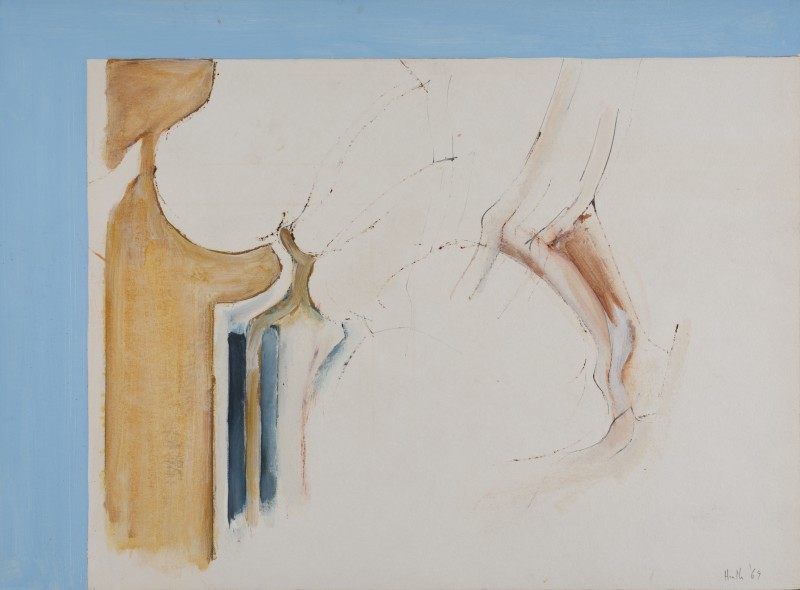 Adrian HeathUntitled, 1969Mixed media on paper56 x 76 cmSigned and dated lower right%3Cdiv%20class%3D%22artist%22%3E%3Cspan%20class%3D%22artist%22%3E%3Cstrong%3EAdrian%20Heath%3C/strong%3E%3C/span%3E%3C/div%3E%0D%3Cdiv%20class%3D%22title%22%3E%3Cem%3EUntitled%3C/em%3E%2C%201969%3C/div%3E%0D%3Cdiv%20class%3D%22signed_and_dated%22%3ESigned%20and%20dated%20lower%20right%3C/div%3E%0D%3Cdiv%20class%3D%22medium%22%3EMixed%20media%20on%20paper%3C/div%3E%0D%3Cdiv%20class%3D%22dimensions%22%3E56%20x%2076%20cm%3C/div%3E
Adrian HeathUntitled, 1969Mixed media on paper56 x 76 cmSigned and dated lower right%3Cdiv%20class%3D%22artist%22%3E%3Cspan%20class%3D%22artist%22%3E%3Cstrong%3EAdrian%20Heath%3C/strong%3E%3C/span%3E%3C/div%3E%0D%3Cdiv%20class%3D%22title%22%3E%3Cem%3EUntitled%3C/em%3E%2C%201969%3C/div%3E%0D%3Cdiv%20class%3D%22signed_and_dated%22%3ESigned%20and%20dated%20lower%20right%3C/div%3E%0D%3Cdiv%20class%3D%22medium%22%3EMixed%20media%20on%20paper%3C/div%3E%0D%3Cdiv%20class%3D%22dimensions%22%3E56%20x%2076%20cm%3C/div%3E -
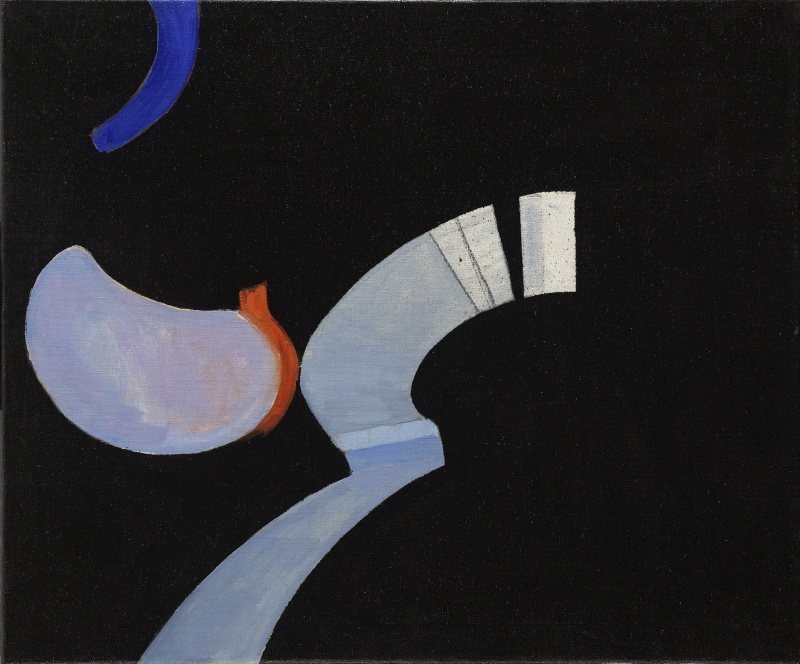 Adrian HeathVakil, 1967Oil on canvas61 x 51cm%3Cdiv%20class%3D%22artist%22%3E%3Cspan%20class%3D%22artist%22%3E%3Cstrong%3EAdrian%20Heath%3C/strong%3E%3C/span%3E%3C/div%3E%0D%3Cdiv%20class%3D%22title%22%3E%3Cem%3EVakil%3C/em%3E%2C%201967%3C/div%3E%0D%3Cdiv%20class%3D%22medium%22%3EOil%20on%20canvas%3C/div%3E%0D%3Cdiv%20class%3D%22dimensions%22%3E61%20x%2051cm%3C/div%3E
Adrian HeathVakil, 1967Oil on canvas61 x 51cm%3Cdiv%20class%3D%22artist%22%3E%3Cspan%20class%3D%22artist%22%3E%3Cstrong%3EAdrian%20Heath%3C/strong%3E%3C/span%3E%3C/div%3E%0D%3Cdiv%20class%3D%22title%22%3E%3Cem%3EVakil%3C/em%3E%2C%201967%3C/div%3E%0D%3Cdiv%20class%3D%22medium%22%3EOil%20on%20canvas%3C/div%3E%0D%3Cdiv%20class%3D%22dimensions%22%3E61%20x%2051cm%3C/div%3E -
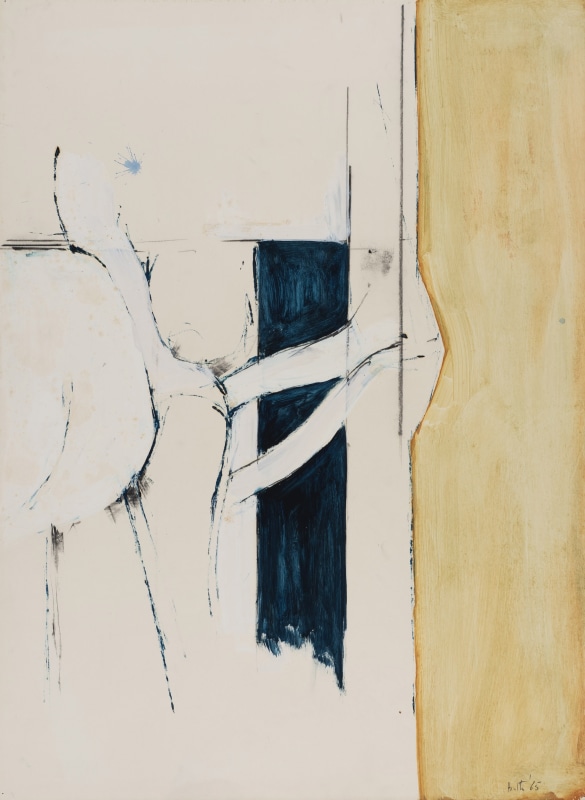 Adrian HeathUntitled (Los Boliches), 1965Mixed media on paper76 x 56 cmSigned and dated lower right; inscribed 'Los Boliches March '65' verso%3Cdiv%20class%3D%22artist%22%3E%3Cspan%20class%3D%22artist%22%3E%3Cstrong%3EAdrian%20Heath%3C/strong%3E%3C/span%3E%3C/div%3E%0D%3Cdiv%20class%3D%22title%22%3E%3Cem%3EUntitled%20%28Los%20Boliches%29%3C/em%3E%2C%201965%3C/div%3E%0D%3Cdiv%20class%3D%22signed_and_dated%22%3ESigned%20and%20dated%20lower%20right%3B%20inscribed%20%27Los%20Boliches%20March%20%2765%27%20verso%3C/div%3E%0D%3Cdiv%20class%3D%22medium%22%3EMixed%20media%20on%20paper%3C/div%3E%0D%3Cdiv%20class%3D%22dimensions%22%3E76%20x%2056%20cm%3C/div%3E
Adrian HeathUntitled (Los Boliches), 1965Mixed media on paper76 x 56 cmSigned and dated lower right; inscribed 'Los Boliches March '65' verso%3Cdiv%20class%3D%22artist%22%3E%3Cspan%20class%3D%22artist%22%3E%3Cstrong%3EAdrian%20Heath%3C/strong%3E%3C/span%3E%3C/div%3E%0D%3Cdiv%20class%3D%22title%22%3E%3Cem%3EUntitled%20%28Los%20Boliches%29%3C/em%3E%2C%201965%3C/div%3E%0D%3Cdiv%20class%3D%22signed_and_dated%22%3ESigned%20and%20dated%20lower%20right%3B%20inscribed%20%27Los%20Boliches%20March%20%2765%27%20verso%3C/div%3E%0D%3Cdiv%20class%3D%22medium%22%3EMixed%20media%20on%20paper%3C/div%3E%0D%3Cdiv%20class%3D%22dimensions%22%3E76%20x%2056%20cm%3C/div%3E -
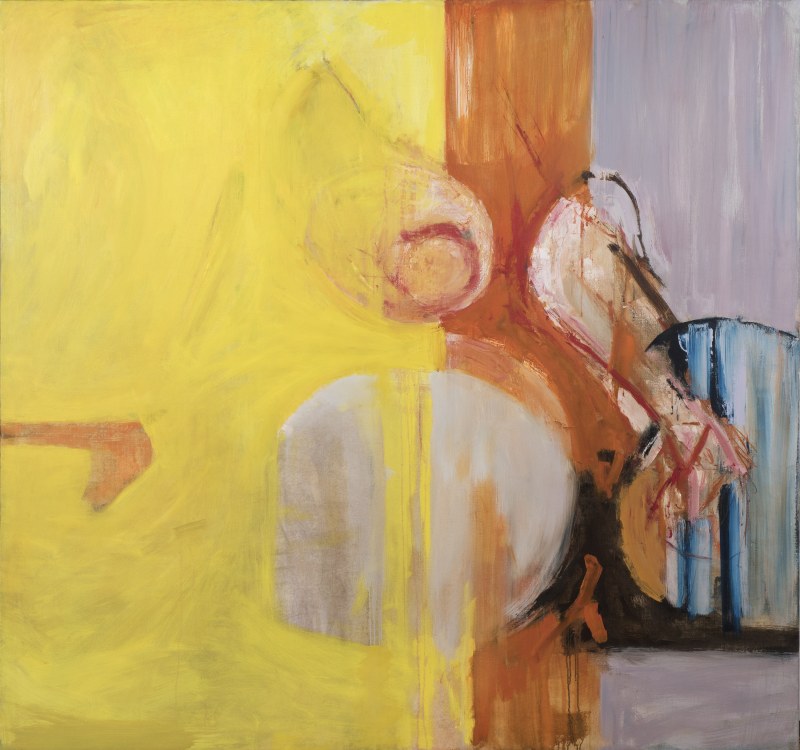 Adrian HeathSubmerged, 1962-64Oil on canvas174 x 182 cm%3Cdiv%20class%3D%22artist%22%3E%3Cspan%20class%3D%22artist%22%3E%3Cstrong%3EAdrian%20Heath%3C/strong%3E%3C/span%3E%3C/div%3E%0D%3Cdiv%20class%3D%22title%22%3E%3Cem%3ESubmerged%3C/em%3E%2C%201962-64%3C/div%3E%0D%3Cdiv%20class%3D%22medium%22%3EOil%20on%20canvas%3C/div%3E%0D%3Cdiv%20class%3D%22dimensions%22%3E174%20x%20182%20cm%3C/div%3E
Adrian HeathSubmerged, 1962-64Oil on canvas174 x 182 cm%3Cdiv%20class%3D%22artist%22%3E%3Cspan%20class%3D%22artist%22%3E%3Cstrong%3EAdrian%20Heath%3C/strong%3E%3C/span%3E%3C/div%3E%0D%3Cdiv%20class%3D%22title%22%3E%3Cem%3ESubmerged%3C/em%3E%2C%201962-64%3C/div%3E%0D%3Cdiv%20class%3D%22medium%22%3EOil%20on%20canvas%3C/div%3E%0D%3Cdiv%20class%3D%22dimensions%22%3E174%20x%20182%20cm%3C/div%3E -
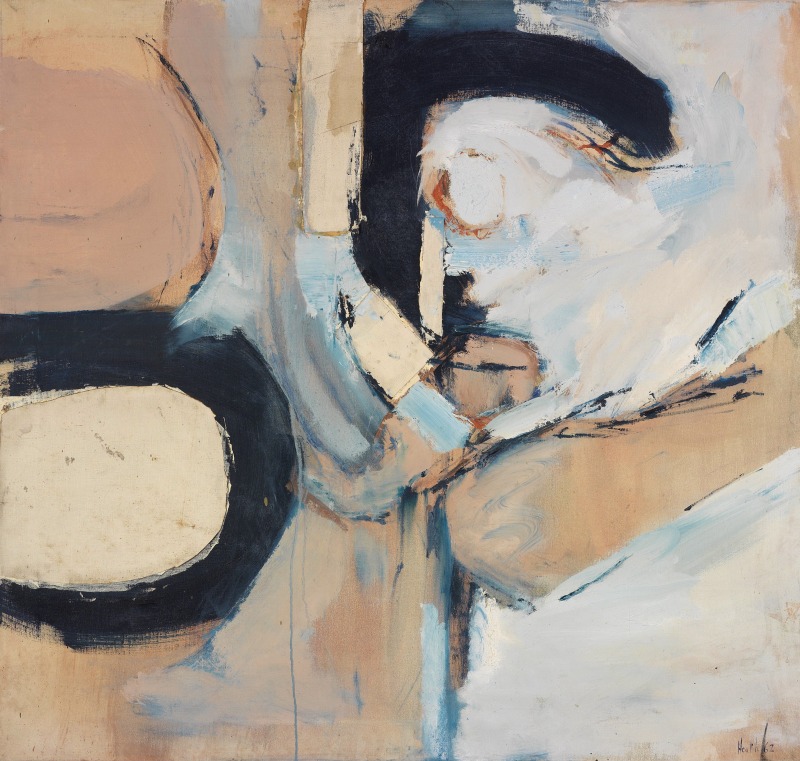 Adrian HeathPainting Blue and White, 1962Oil and collage on canvas91.5 x 96.5cm%3Cdiv%20class%3D%22artist%22%3E%3Cspan%20class%3D%22artist%22%3E%3Cstrong%3EAdrian%20Heath%3C/strong%3E%3C/span%3E%3C/div%3E%0D%3Cdiv%20class%3D%22title%22%3E%3Cem%3EPainting%20Blue%20and%20White%3C/em%3E%2C%201962%3C/div%3E%0D%3Cdiv%20class%3D%22medium%22%3EOil%20and%20collage%20on%20canvas%3C/div%3E%0D%3Cdiv%20class%3D%22dimensions%22%3E91.5%20x%2096.5cm%3C/div%3E
Adrian HeathPainting Blue and White, 1962Oil and collage on canvas91.5 x 96.5cm%3Cdiv%20class%3D%22artist%22%3E%3Cspan%20class%3D%22artist%22%3E%3Cstrong%3EAdrian%20Heath%3C/strong%3E%3C/span%3E%3C/div%3E%0D%3Cdiv%20class%3D%22title%22%3E%3Cem%3EPainting%20Blue%20and%20White%3C/em%3E%2C%201962%3C/div%3E%0D%3Cdiv%20class%3D%22medium%22%3EOil%20and%20collage%20on%20canvas%3C/div%3E%0D%3Cdiv%20class%3D%22dimensions%22%3E91.5%20x%2096.5cm%3C/div%3E -
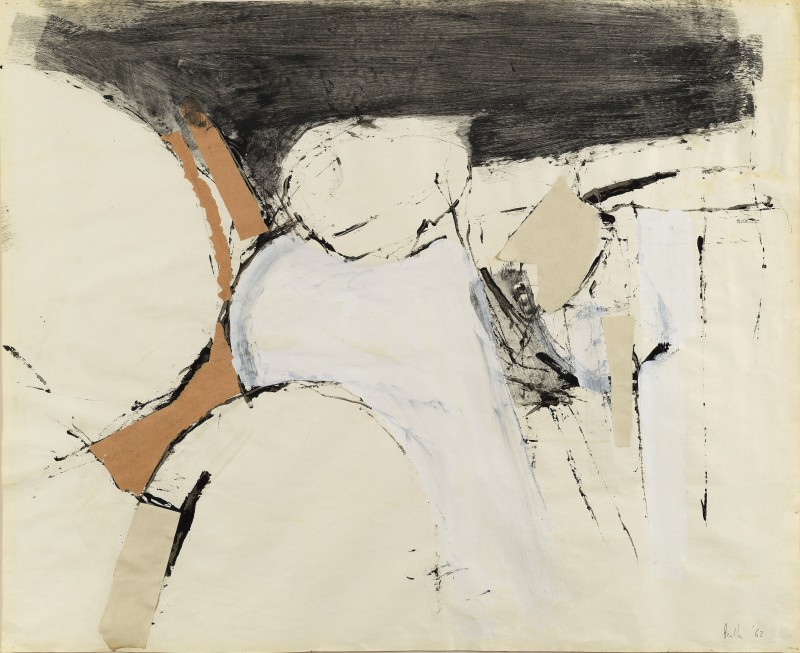 Adrian HeathUntitled, 1962Ink, gouache and collage on paper76 x 93 cmSigned and dated lower right%3Cdiv%20class%3D%22artist%22%3E%3Cspan%20class%3D%22artist%22%3E%3Cstrong%3EAdrian%20Heath%3C/strong%3E%3C/span%3E%3C/div%3E%0D%3Cdiv%20class%3D%22title%22%3E%3Cem%3EUntitled%3C/em%3E%2C%201962%3C/div%3E%0D%3Cdiv%20class%3D%22signed_and_dated%22%3ESigned%20and%20dated%20lower%20right%3C/div%3E%0D%3Cdiv%20class%3D%22medium%22%3EInk%2C%20gouache%20and%20collage%20on%20paper%3C/div%3E%0D%3Cdiv%20class%3D%22dimensions%22%3E76%20x%2093%20cm%3C/div%3E
Adrian HeathUntitled, 1962Ink, gouache and collage on paper76 x 93 cmSigned and dated lower right%3Cdiv%20class%3D%22artist%22%3E%3Cspan%20class%3D%22artist%22%3E%3Cstrong%3EAdrian%20Heath%3C/strong%3E%3C/span%3E%3C/div%3E%0D%3Cdiv%20class%3D%22title%22%3E%3Cem%3EUntitled%3C/em%3E%2C%201962%3C/div%3E%0D%3Cdiv%20class%3D%22signed_and_dated%22%3ESigned%20and%20dated%20lower%20right%3C/div%3E%0D%3Cdiv%20class%3D%22medium%22%3EInk%2C%20gouache%20and%20collage%20on%20paper%3C/div%3E%0D%3Cdiv%20class%3D%22dimensions%22%3E76%20x%2093%20cm%3C/div%3E -
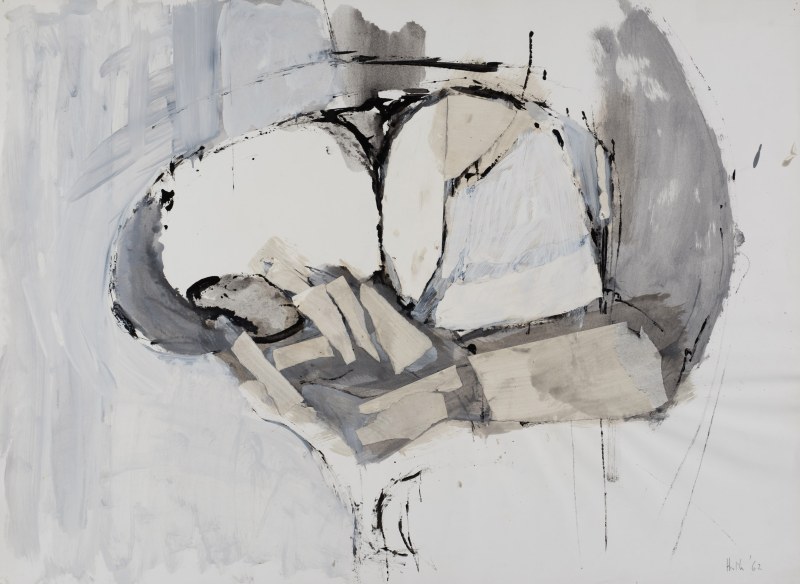 Adrian HeathUntitled, 1962Oil, gouache, ink and collage on paper56.1 x 76.5 cmSigned and dated lower right%3Cdiv%20class%3D%22artist%22%3E%3Cspan%20class%3D%22artist%22%3E%3Cstrong%3EAdrian%20Heath%3C/strong%3E%3C/span%3E%3C/div%3E%0D%3Cdiv%20class%3D%22title%22%3E%3Cem%3EUntitled%3C/em%3E%2C%201962%3C/div%3E%0D%3Cdiv%20class%3D%22signed_and_dated%22%3ESigned%20and%20dated%20lower%20right%3C/div%3E%0D%3Cdiv%20class%3D%22medium%22%3EOil%2C%20gouache%2C%20ink%20and%20collage%20on%20paper%3C/div%3E%0D%3Cdiv%20class%3D%22dimensions%22%3E56.1%20x%2076.5%20cm%3C/div%3E
Adrian HeathUntitled, 1962Oil, gouache, ink and collage on paper56.1 x 76.5 cmSigned and dated lower right%3Cdiv%20class%3D%22artist%22%3E%3Cspan%20class%3D%22artist%22%3E%3Cstrong%3EAdrian%20Heath%3C/strong%3E%3C/span%3E%3C/div%3E%0D%3Cdiv%20class%3D%22title%22%3E%3Cem%3EUntitled%3C/em%3E%2C%201962%3C/div%3E%0D%3Cdiv%20class%3D%22signed_and_dated%22%3ESigned%20and%20dated%20lower%20right%3C/div%3E%0D%3Cdiv%20class%3D%22medium%22%3EOil%2C%20gouache%2C%20ink%20and%20collage%20on%20paper%3C/div%3E%0D%3Cdiv%20class%3D%22dimensions%22%3E56.1%20x%2076.5%20cm%3C/div%3E -
 Adrian HeathPainting, 1961Oil on canvas173 x 183 cm%3Cdiv%20class%3D%22artist%22%3E%3Cspan%20class%3D%22artist%22%3E%3Cstrong%3EAdrian%20Heath%3C/strong%3E%3C/span%3E%3C/div%3E%0D%3Cdiv%20class%3D%22title%22%3E%3Cem%3EPainting%3C/em%3E%2C%201961%3C/div%3E%0D%3Cdiv%20class%3D%22medium%22%3EOil%20on%20canvas%3C/div%3E%0D%3Cdiv%20class%3D%22dimensions%22%3E173%20x%20183%20cm%3C/div%3E
Adrian HeathPainting, 1961Oil on canvas173 x 183 cm%3Cdiv%20class%3D%22artist%22%3E%3Cspan%20class%3D%22artist%22%3E%3Cstrong%3EAdrian%20Heath%3C/strong%3E%3C/span%3E%3C/div%3E%0D%3Cdiv%20class%3D%22title%22%3E%3Cem%3EPainting%3C/em%3E%2C%201961%3C/div%3E%0D%3Cdiv%20class%3D%22medium%22%3EOil%20on%20canvas%3C/div%3E%0D%3Cdiv%20class%3D%22dimensions%22%3E173%20x%20183%20cm%3C/div%3E -
 Adrian HeathUntitled, 1961Ink and gouache on paper76.5 x 45 cmSigned and dated lower right%3Cdiv%20class%3D%22artist%22%3E%3Cspan%20class%3D%22artist%22%3E%3Cstrong%3EAdrian%20Heath%3C/strong%3E%3C/span%3E%3C/div%3E%0D%3Cdiv%20class%3D%22title%22%3E%3Cem%3EUntitled%3C/em%3E%2C%201961%3C/div%3E%0D%3Cdiv%20class%3D%22signed_and_dated%22%3ESigned%20and%20dated%20lower%20right%3C/div%3E%0D%3Cdiv%20class%3D%22medium%22%3EInk%20and%20gouache%20on%20paper%3C/div%3E%0D%3Cdiv%20class%3D%22dimensions%22%3E76.5%20x%2045%20cm%3C/div%3E
Adrian HeathUntitled, 1961Ink and gouache on paper76.5 x 45 cmSigned and dated lower right%3Cdiv%20class%3D%22artist%22%3E%3Cspan%20class%3D%22artist%22%3E%3Cstrong%3EAdrian%20Heath%3C/strong%3E%3C/span%3E%3C/div%3E%0D%3Cdiv%20class%3D%22title%22%3E%3Cem%3EUntitled%3C/em%3E%2C%201961%3C/div%3E%0D%3Cdiv%20class%3D%22signed_and_dated%22%3ESigned%20and%20dated%20lower%20right%3C/div%3E%0D%3Cdiv%20class%3D%22medium%22%3EInk%20and%20gouache%20on%20paper%3C/div%3E%0D%3Cdiv%20class%3D%22dimensions%22%3E76.5%20x%2045%20cm%3C/div%3E -
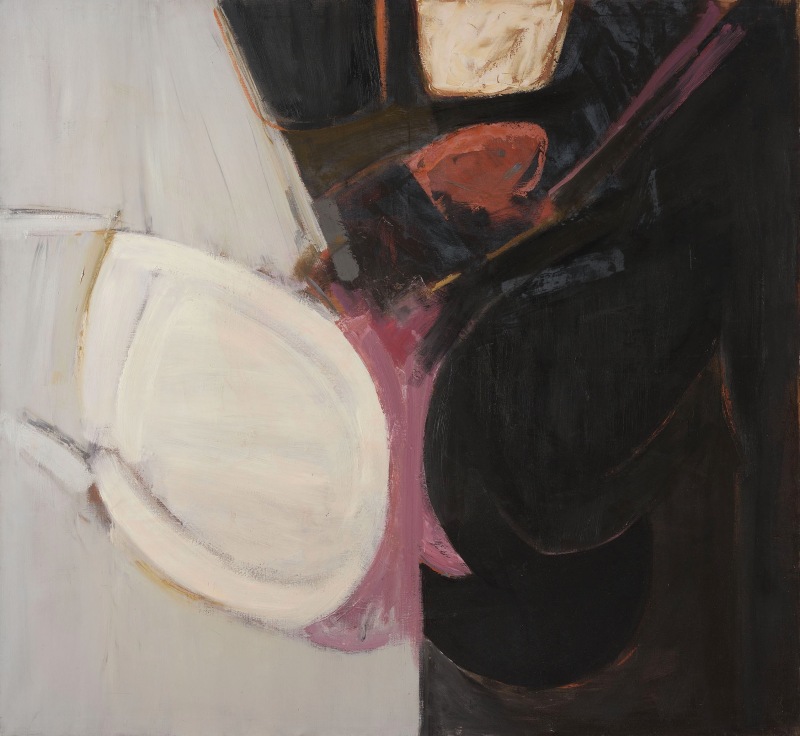 Adrian HeathUntitled, 1961Oil on canvas183 x 198 cm%3Cdiv%20class%3D%22artist%22%3E%3Cspan%20class%3D%22artist%22%3E%3Cstrong%3EAdrian%20Heath%3C/strong%3E%3C/span%3E%3C/div%3E%0D%3Cdiv%20class%3D%22title%22%3E%3Cem%3EUntitled%3C/em%3E%2C%201961%3C/div%3E%0D%3Cdiv%20class%3D%22medium%22%3EOil%20on%20canvas%3C/div%3E%0D%3Cdiv%20class%3D%22dimensions%22%3E183%20x%20198%20cm%3C/div%3E
Adrian HeathUntitled, 1961Oil on canvas183 x 198 cm%3Cdiv%20class%3D%22artist%22%3E%3Cspan%20class%3D%22artist%22%3E%3Cstrong%3EAdrian%20Heath%3C/strong%3E%3C/span%3E%3C/div%3E%0D%3Cdiv%20class%3D%22title%22%3E%3Cem%3EUntitled%3C/em%3E%2C%201961%3C/div%3E%0D%3Cdiv%20class%3D%22medium%22%3EOil%20on%20canvas%3C/div%3E%0D%3Cdiv%20class%3D%22dimensions%22%3E183%20x%20198%20cm%3C/div%3E -
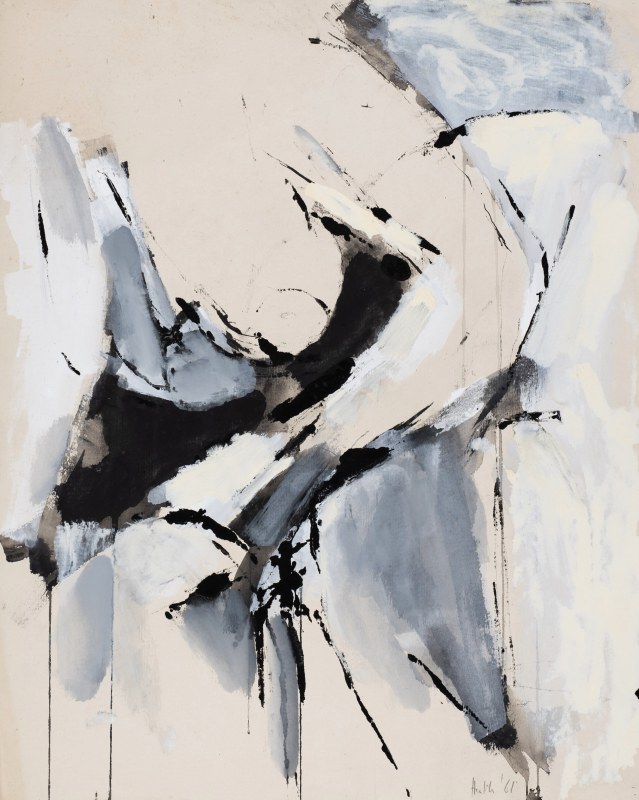 Adrian HeathUntitled, 1961Oil, gouache and collage on paper63.5 x 50.7 cmSigned and dated lower right%3Cdiv%20class%3D%22artist%22%3E%3Cspan%20class%3D%22artist%22%3E%3Cstrong%3EAdrian%20Heath%3C/strong%3E%3C/span%3E%3C/div%3E%0D%3Cdiv%20class%3D%22title%22%3E%3Cem%3EUntitled%3C/em%3E%2C%201961%3C/div%3E%0D%3Cdiv%20class%3D%22signed_and_dated%22%3ESigned%20and%20dated%20lower%20right%3C/div%3E%0D%3Cdiv%20class%3D%22medium%22%3EOil%2C%20gouache%20and%20collage%20on%20paper%3C/div%3E%0D%3Cdiv%20class%3D%22dimensions%22%3E63.5%20x%2050.7%20cm%3C/div%3E
Adrian HeathUntitled, 1961Oil, gouache and collage on paper63.5 x 50.7 cmSigned and dated lower right%3Cdiv%20class%3D%22artist%22%3E%3Cspan%20class%3D%22artist%22%3E%3Cstrong%3EAdrian%20Heath%3C/strong%3E%3C/span%3E%3C/div%3E%0D%3Cdiv%20class%3D%22title%22%3E%3Cem%3EUntitled%3C/em%3E%2C%201961%3C/div%3E%0D%3Cdiv%20class%3D%22signed_and_dated%22%3ESigned%20and%20dated%20lower%20right%3C/div%3E%0D%3Cdiv%20class%3D%22medium%22%3EOil%2C%20gouache%20and%20collage%20on%20paper%3C/div%3E%0D%3Cdiv%20class%3D%22dimensions%22%3E63.5%20x%2050.7%20cm%3C/div%3E -
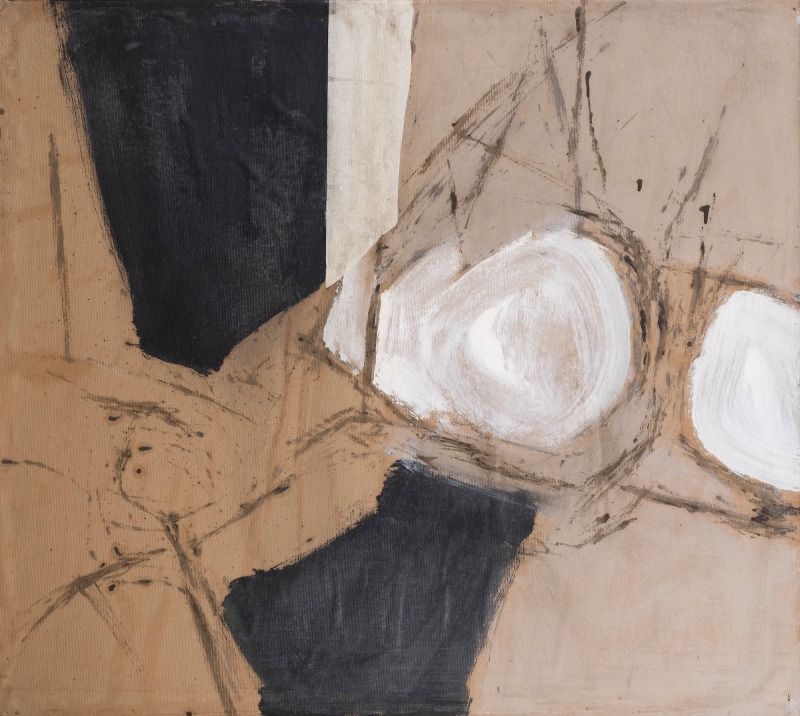 Adrian HeathBlack and White, 1960Mixed media and collage on paper on canvas90 x 103cm%3Cdiv%20class%3D%22artist%22%3E%3Cspan%20class%3D%22artist%22%3E%3Cstrong%3EAdrian%20Heath%3C/strong%3E%3C/span%3E%3C/div%3E%0D%3Cdiv%20class%3D%22title%22%3E%3Cem%3EBlack%20and%20White%3C/em%3E%2C%201960%3C/div%3E%0D%3Cdiv%20class%3D%22medium%22%3EMixed%20media%20and%20collage%20on%20paper%20on%20canvas%3C/div%3E%0D%3Cdiv%20class%3D%22dimensions%22%3E90%20x%20103cm%3C/div%3E
Adrian HeathBlack and White, 1960Mixed media and collage on paper on canvas90 x 103cm%3Cdiv%20class%3D%22artist%22%3E%3Cspan%20class%3D%22artist%22%3E%3Cstrong%3EAdrian%20Heath%3C/strong%3E%3C/span%3E%3C/div%3E%0D%3Cdiv%20class%3D%22title%22%3E%3Cem%3EBlack%20and%20White%3C/em%3E%2C%201960%3C/div%3E%0D%3Cdiv%20class%3D%22medium%22%3EMixed%20media%20and%20collage%20on%20paper%20on%20canvas%3C/div%3E%0D%3Cdiv%20class%3D%22dimensions%22%3E90%20x%20103cm%3C/div%3E -
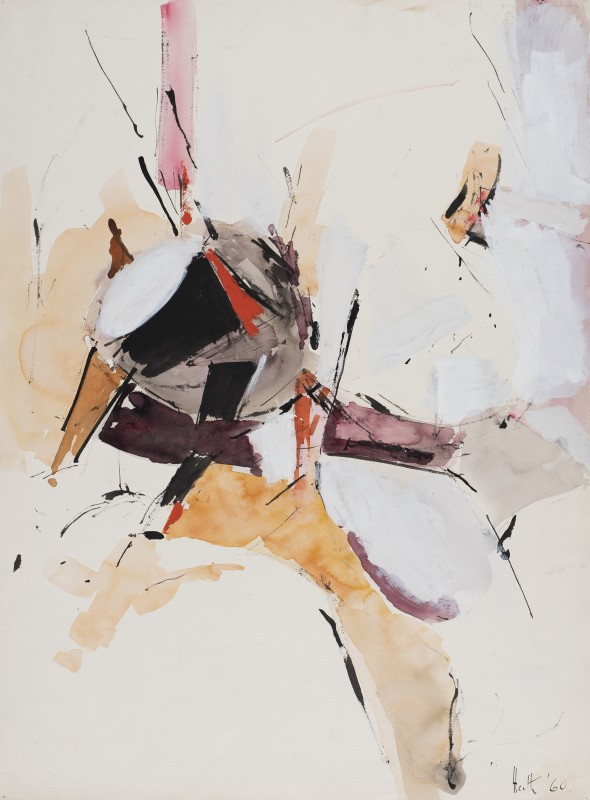 Adrian HeathComposition - Red and Orange, 1960Ink and gouache on paper76 x 56 cmSigned and dated lower right; titled verso%3Cdiv%20class%3D%22artist%22%3E%3Cspan%20class%3D%22artist%22%3E%3Cstrong%3EAdrian%20Heath%3C/strong%3E%3C/span%3E%3C/div%3E%0D%3Cdiv%20class%3D%22title%22%3E%3Cem%3EComposition%20-%20Red%20and%20Orange%3C/em%3E%2C%201960%3C/div%3E%0D%3Cdiv%20class%3D%22signed_and_dated%22%3ESigned%20and%20dated%20lower%20right%3B%20titled%20verso%3C/div%3E%0D%3Cdiv%20class%3D%22medium%22%3EInk%20and%20gouache%20on%20paper%3C/div%3E%0D%3Cdiv%20class%3D%22dimensions%22%3E76%20x%2056%20cm%3C/div%3E
Adrian HeathComposition - Red and Orange, 1960Ink and gouache on paper76 x 56 cmSigned and dated lower right; titled verso%3Cdiv%20class%3D%22artist%22%3E%3Cspan%20class%3D%22artist%22%3E%3Cstrong%3EAdrian%20Heath%3C/strong%3E%3C/span%3E%3C/div%3E%0D%3Cdiv%20class%3D%22title%22%3E%3Cem%3EComposition%20-%20Red%20and%20Orange%3C/em%3E%2C%201960%3C/div%3E%0D%3Cdiv%20class%3D%22signed_and_dated%22%3ESigned%20and%20dated%20lower%20right%3B%20titled%20verso%3C/div%3E%0D%3Cdiv%20class%3D%22medium%22%3EInk%20and%20gouache%20on%20paper%3C/div%3E%0D%3Cdiv%20class%3D%22dimensions%22%3E76%20x%2056%20cm%3C/div%3E -
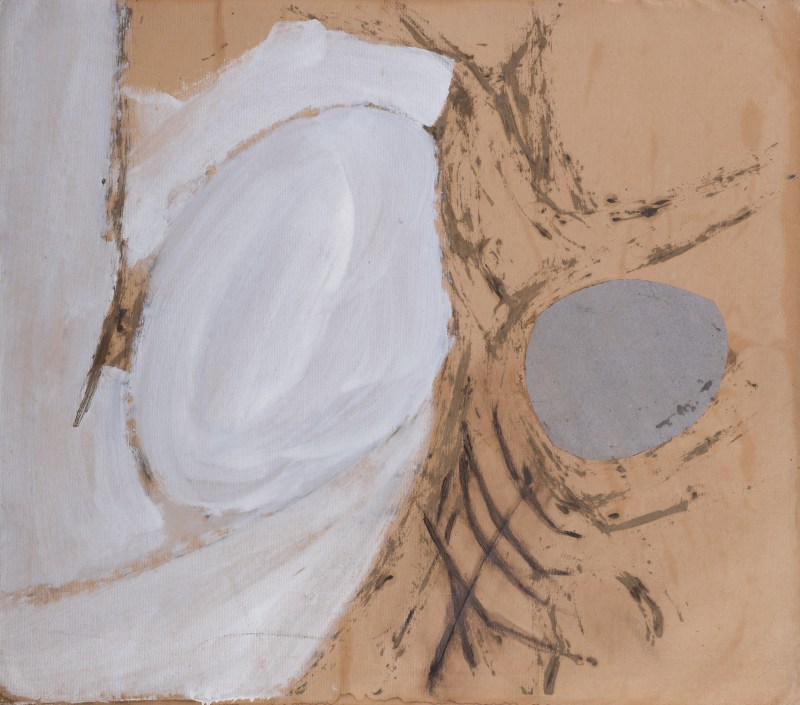 Adrian HeathComposition with White, 1960Mixed media and collage on brown paper on canvas90 x 102cm%3Cdiv%20class%3D%22artist%22%3E%3Cspan%20class%3D%22artist%22%3E%3Cstrong%3EAdrian%20Heath%3C/strong%3E%3C/span%3E%3C/div%3E%0D%3Cdiv%20class%3D%22title%22%3E%3Cem%3EComposition%20with%20White%3C/em%3E%2C%201960%3C/div%3E%0D%3Cdiv%20class%3D%22medium%22%3EMixed%20media%20and%20collage%20on%20brown%20paper%20on%20canvas%3C/div%3E%0D%3Cdiv%20class%3D%22dimensions%22%3E90%20x%20102cm%3C/div%3E
Adrian HeathComposition with White, 1960Mixed media and collage on brown paper on canvas90 x 102cm%3Cdiv%20class%3D%22artist%22%3E%3Cspan%20class%3D%22artist%22%3E%3Cstrong%3EAdrian%20Heath%3C/strong%3E%3C/span%3E%3C/div%3E%0D%3Cdiv%20class%3D%22title%22%3E%3Cem%3EComposition%20with%20White%3C/em%3E%2C%201960%3C/div%3E%0D%3Cdiv%20class%3D%22medium%22%3EMixed%20media%20and%20collage%20on%20brown%20paper%20on%20canvas%3C/div%3E%0D%3Cdiv%20class%3D%22dimensions%22%3E90%20x%20102cm%3C/div%3E -
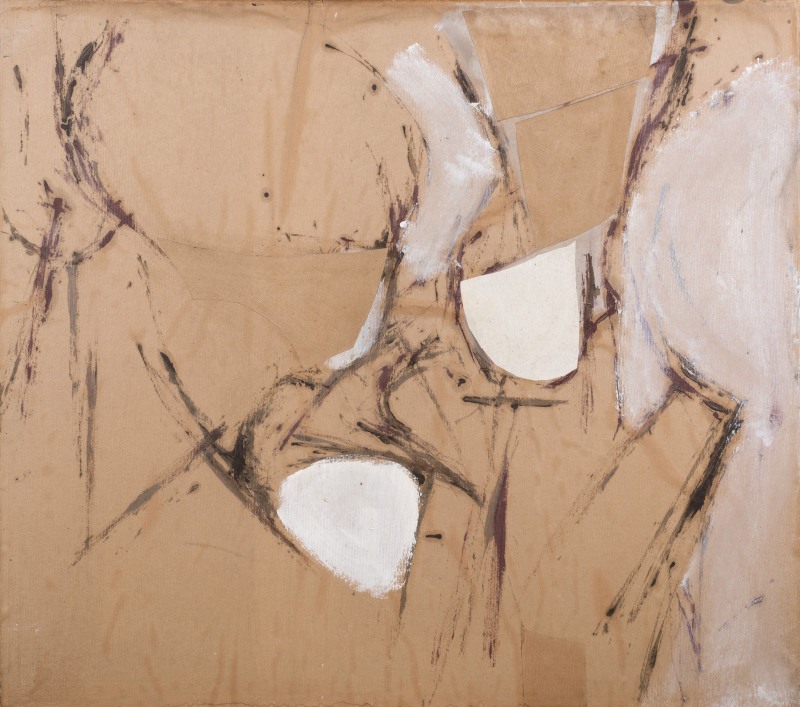 Adrian HeathWhite Forms, 1960Mixed media and collage on brown paper on canvas90 x 102cm%3Cdiv%20class%3D%22artist%22%3E%3Cspan%20class%3D%22artist%22%3E%3Cstrong%3EAdrian%20Heath%3C/strong%3E%3C/span%3E%3C/div%3E%0D%3Cdiv%20class%3D%22title%22%3E%3Cem%3EWhite%20Forms%3C/em%3E%2C%201960%3C/div%3E%0D%3Cdiv%20class%3D%22medium%22%3EMixed%20media%20and%20collage%20on%20brown%20paper%20on%20canvas%3C/div%3E%0D%3Cdiv%20class%3D%22dimensions%22%3E90%20x%20102cm%3C/div%3E
Adrian HeathWhite Forms, 1960Mixed media and collage on brown paper on canvas90 x 102cm%3Cdiv%20class%3D%22artist%22%3E%3Cspan%20class%3D%22artist%22%3E%3Cstrong%3EAdrian%20Heath%3C/strong%3E%3C/span%3E%3C/div%3E%0D%3Cdiv%20class%3D%22title%22%3E%3Cem%3EWhite%20Forms%3C/em%3E%2C%201960%3C/div%3E%0D%3Cdiv%20class%3D%22medium%22%3EMixed%20media%20and%20collage%20on%20brown%20paper%20on%20canvas%3C/div%3E%0D%3Cdiv%20class%3D%22dimensions%22%3E90%20x%20102cm%3C/div%3E -
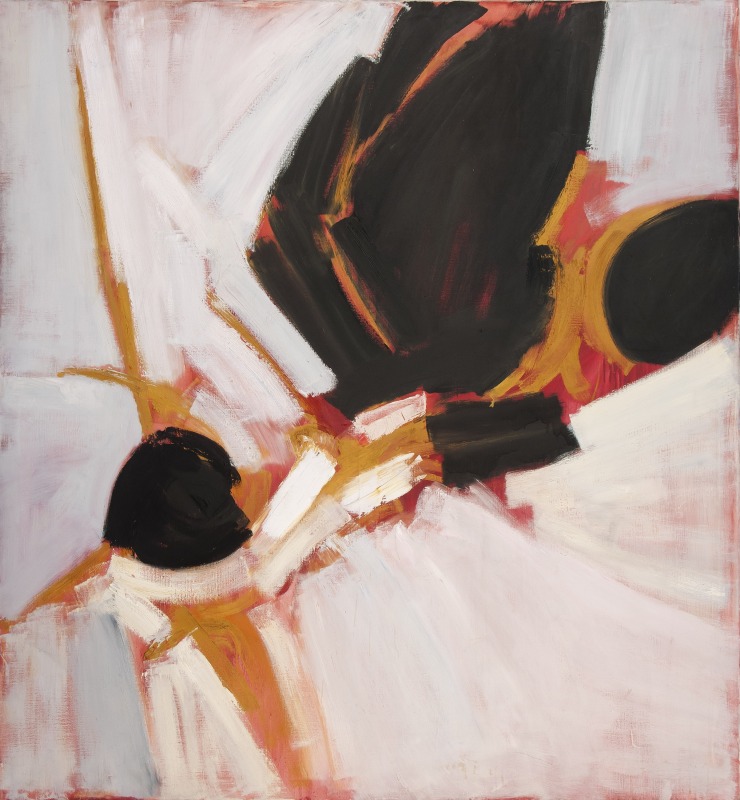 Adrian HeathPainting - Black, White with Pink and Yellow, 1959Oil on canvas182 x 198 cm%3Cdiv%20class%3D%22artist%22%3E%3Cspan%20class%3D%22artist%22%3E%3Cstrong%3EAdrian%20Heath%3C/strong%3E%3C/span%3E%3C/div%3E%0D%3Cdiv%20class%3D%22title%22%3E%3Cem%3EPainting%20-%20Black%2C%20White%20with%20Pink%20and%20Yellow%3C/em%3E%2C%201959%3C/div%3E%0D%3Cdiv%20class%3D%22medium%22%3EOil%20on%20canvas%3C/div%3E%0D%3Cdiv%20class%3D%22dimensions%22%3E182%20x%20198%20cm%3C/div%3E
Adrian HeathPainting - Black, White with Pink and Yellow, 1959Oil on canvas182 x 198 cm%3Cdiv%20class%3D%22artist%22%3E%3Cspan%20class%3D%22artist%22%3E%3Cstrong%3EAdrian%20Heath%3C/strong%3E%3C/span%3E%3C/div%3E%0D%3Cdiv%20class%3D%22title%22%3E%3Cem%3EPainting%20-%20Black%2C%20White%20with%20Pink%20and%20Yellow%3C/em%3E%2C%201959%3C/div%3E%0D%3Cdiv%20class%3D%22medium%22%3EOil%20on%20canvas%3C/div%3E%0D%3Cdiv%20class%3D%22dimensions%22%3E182%20x%20198%20cm%3C/div%3E -
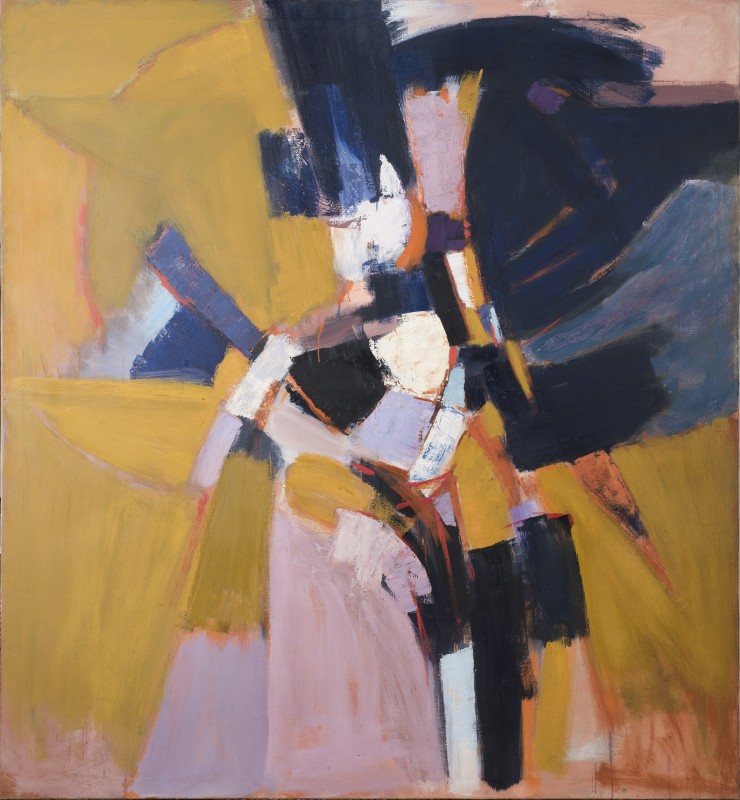 Adrian HeathYellow Ochre, 1959Oil on canvas198.1 x 182.9 cm%3Cdiv%20class%3D%22artist%22%3E%3Cspan%20class%3D%22artist%22%3E%3Cstrong%3EAdrian%20Heath%3C/strong%3E%3C/span%3E%3C/div%3E%0D%3Cdiv%20class%3D%22title%22%3E%3Cem%3EYellow%20Ochre%3C/em%3E%2C%201959%3C/div%3E%0D%3Cdiv%20class%3D%22medium%22%3EOil%20on%20canvas%3C/div%3E%0D%3Cdiv%20class%3D%22dimensions%22%3E198.1%20x%20182.9%20cm%3C/div%3E
Adrian HeathYellow Ochre, 1959Oil on canvas198.1 x 182.9 cm%3Cdiv%20class%3D%22artist%22%3E%3Cspan%20class%3D%22artist%22%3E%3Cstrong%3EAdrian%20Heath%3C/strong%3E%3C/span%3E%3C/div%3E%0D%3Cdiv%20class%3D%22title%22%3E%3Cem%3EYellow%20Ochre%3C/em%3E%2C%201959%3C/div%3E%0D%3Cdiv%20class%3D%22medium%22%3EOil%20on%20canvas%3C/div%3E%0D%3Cdiv%20class%3D%22dimensions%22%3E198.1%20x%20182.9%20cm%3C/div%3E -
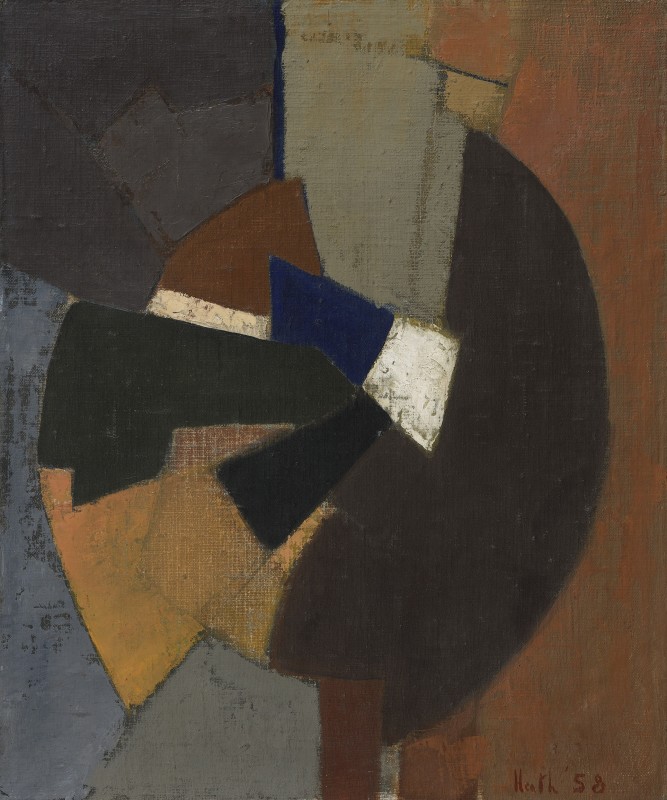 Adrian HeathOval Theme, 1958Oil on canvas stretched over board61 x 51 cmSigned and dated lower right%3Cdiv%20class%3D%22artist%22%3E%3Cspan%20class%3D%22artist%22%3E%3Cstrong%3EAdrian%20Heath%3C/strong%3E%3C/span%3E%3C/div%3E%0D%3Cdiv%20class%3D%22title%22%3E%3Cem%3EOval%20Theme%3C/em%3E%2C%201958%3C/div%3E%0D%3Cdiv%20class%3D%22signed_and_dated%22%3ESigned%20and%20dated%20lower%20right%3C/div%3E%0D%3Cdiv%20class%3D%22medium%22%3EOil%20on%20canvas%20stretched%20over%20board%3C/div%3E%0D%3Cdiv%20class%3D%22dimensions%22%3E61%20x%2051%20cm%3C/div%3E
Adrian HeathOval Theme, 1958Oil on canvas stretched over board61 x 51 cmSigned and dated lower right%3Cdiv%20class%3D%22artist%22%3E%3Cspan%20class%3D%22artist%22%3E%3Cstrong%3EAdrian%20Heath%3C/strong%3E%3C/span%3E%3C/div%3E%0D%3Cdiv%20class%3D%22title%22%3E%3Cem%3EOval%20Theme%3C/em%3E%2C%201958%3C/div%3E%0D%3Cdiv%20class%3D%22signed_and_dated%22%3ESigned%20and%20dated%20lower%20right%3C/div%3E%0D%3Cdiv%20class%3D%22medium%22%3EOil%20on%20canvas%20stretched%20over%20board%3C/div%3E%0D%3Cdiv%20class%3D%22dimensions%22%3E61%20x%2051%20cm%3C/div%3E -
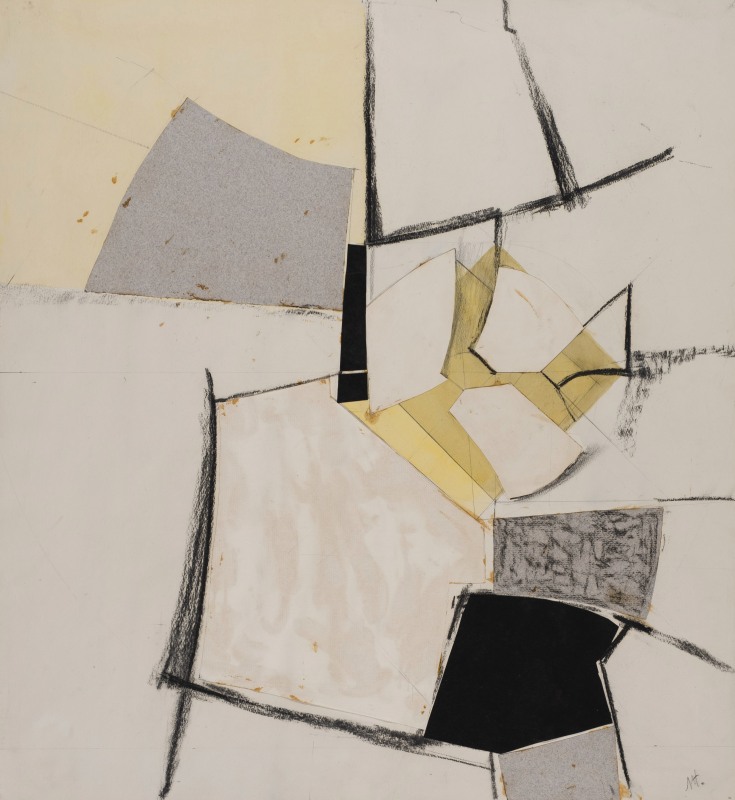 Adrian HeathUntitled, 1956Charcoal, watercolour, pencil and collage on paper56 x 51.5 cmInitialled lower right%3Cdiv%20class%3D%22artist%22%3E%3Cspan%20class%3D%22artist%22%3E%3Cstrong%3EAdrian%20Heath%3C/strong%3E%3C/span%3E%3C/div%3E%0D%3Cdiv%20class%3D%22title%22%3E%3Cem%3EUntitled%3C/em%3E%2C%201956%3C/div%3E%0D%3Cdiv%20class%3D%22signed_and_dated%22%3EInitialled%20lower%20right%3C/div%3E%0D%3Cdiv%20class%3D%22medium%22%3ECharcoal%2C%20watercolour%2C%20pencil%20and%20collage%20on%20paper%3C/div%3E%0D%3Cdiv%20class%3D%22dimensions%22%3E56%20x%2051.5%20cm%3C/div%3E
Adrian HeathUntitled, 1956Charcoal, watercolour, pencil and collage on paper56 x 51.5 cmInitialled lower right%3Cdiv%20class%3D%22artist%22%3E%3Cspan%20class%3D%22artist%22%3E%3Cstrong%3EAdrian%20Heath%3C/strong%3E%3C/span%3E%3C/div%3E%0D%3Cdiv%20class%3D%22title%22%3E%3Cem%3EUntitled%3C/em%3E%2C%201956%3C/div%3E%0D%3Cdiv%20class%3D%22signed_and_dated%22%3EInitialled%20lower%20right%3C/div%3E%0D%3Cdiv%20class%3D%22medium%22%3ECharcoal%2C%20watercolour%2C%20pencil%20and%20collage%20on%20paper%3C/div%3E%0D%3Cdiv%20class%3D%22dimensions%22%3E56%20x%2051.5%20cm%3C/div%3E -
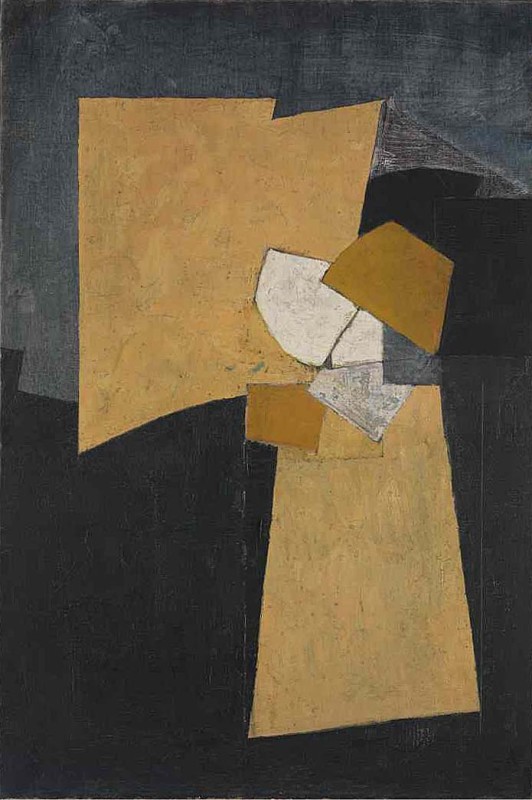 Adrian HeathUntitled, 1954Oil on canvas91 x 61 cmSigned and dated verso%3Cdiv%20class%3D%22artist%22%3E%3Cspan%20class%3D%22artist%22%3E%3Cstrong%3EAdrian%20Heath%3C/strong%3E%3C/span%3E%3C/div%3E%0D%3Cdiv%20class%3D%22title%22%3E%3Cem%3EUntitled%3C/em%3E%2C%201954%3C/div%3E%0D%3Cdiv%20class%3D%22signed_and_dated%22%3ESigned%20and%20dated%20verso%3C/div%3E%0D%3Cdiv%20class%3D%22medium%22%3EOil%20on%20canvas%3C/div%3E%0D%3Cdiv%20class%3D%22dimensions%22%3E91%20x%2061%20cm%3C/div%3E
Adrian HeathUntitled, 1954Oil on canvas91 x 61 cmSigned and dated verso%3Cdiv%20class%3D%22artist%22%3E%3Cspan%20class%3D%22artist%22%3E%3Cstrong%3EAdrian%20Heath%3C/strong%3E%3C/span%3E%3C/div%3E%0D%3Cdiv%20class%3D%22title%22%3E%3Cem%3EUntitled%3C/em%3E%2C%201954%3C/div%3E%0D%3Cdiv%20class%3D%22signed_and_dated%22%3ESigned%20and%20dated%20verso%3C/div%3E%0D%3Cdiv%20class%3D%22medium%22%3EOil%20on%20canvas%3C/div%3E%0D%3Cdiv%20class%3D%22dimensions%22%3E91%20x%2061%20cm%3C/div%3E -
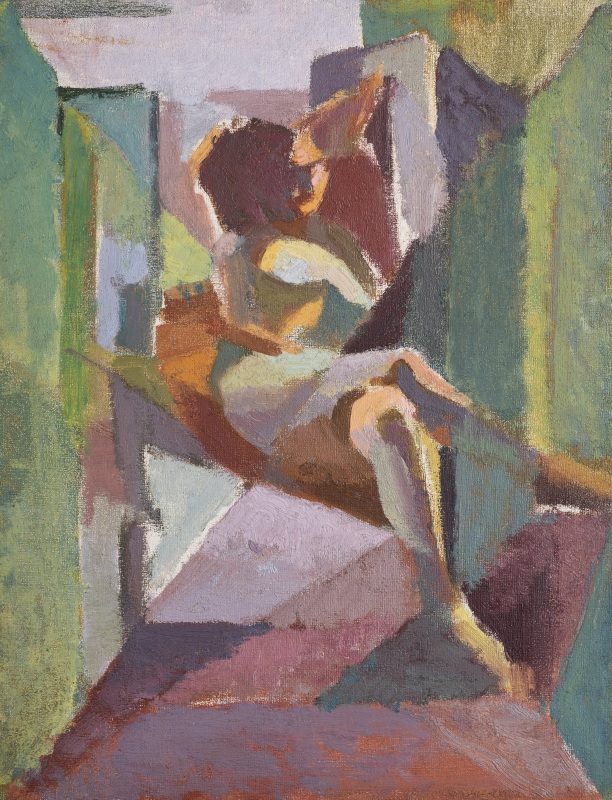 Adrian HeathNude, 1949Oil on board32.5 x 24.5 cm%3Cdiv%20class%3D%22artist%22%3E%3Cspan%20class%3D%22artist%22%3E%3Cstrong%3EAdrian%20Heath%3C/strong%3E%3C/span%3E%3C/div%3E%0D%3Cdiv%20class%3D%22title%22%3E%3Cem%3ENude%3C/em%3E%2C%201949%3C/div%3E%0D%3Cdiv%20class%3D%22medium%22%3EOil%20on%20board%3C/div%3E%0D%3Cdiv%20class%3D%22dimensions%22%3E32.5%20x%2024.5%20cm%3C/div%3E
Adrian HeathNude, 1949Oil on board32.5 x 24.5 cm%3Cdiv%20class%3D%22artist%22%3E%3Cspan%20class%3D%22artist%22%3E%3Cstrong%3EAdrian%20Heath%3C/strong%3E%3C/span%3E%3C/div%3E%0D%3Cdiv%20class%3D%22title%22%3E%3Cem%3ENude%3C/em%3E%2C%201949%3C/div%3E%0D%3Cdiv%20class%3D%22medium%22%3EOil%20on%20board%3C/div%3E%0D%3Cdiv%20class%3D%22dimensions%22%3E32.5%20x%2024.5%20cm%3C/div%3E
